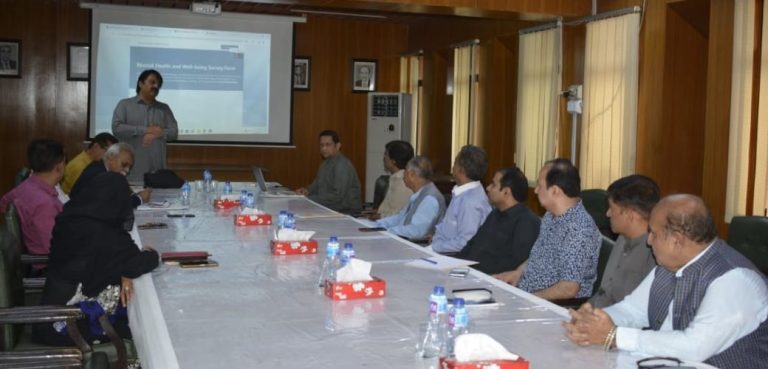The appeal by over 1010 world poets has been addressed to all presidents and leaders of world countries
WPM HQ, Medellín, Columbia
World Poetry Movement (WPM) have gathered more than 1010 signatures by world poets in more than 140 countries on an appeal to act for immediate ceasefire and humanitarian assistance in Gaza.
The appeal has been addressed to all honorable presidents and leaders of world countries: Joe Biden, president of the United States, Xi Jinping, president of China, Vladimir Putin, president of Russia, Rishi Sunak, Prime Minister of England, Olaf Scholz, Prime Minister of Germany, Emmanuel Macron, president of France, Fumio Kishida, Prime Minister of Japan, Gustavo Petro, president of Colombia, Manuel López Obrador, president of Mexico, Prince Mohamed bin Salman, Prime Minister of Saudi Arabia, Ali Khamenei, head of state of Iran, Michael Higgins, President of Ireland, Narendra Modi, Prime Minister of India, Justin Trudeau, Prime Minister of Canada and Luiz Inácio Lula da Silva, president of Brazil.
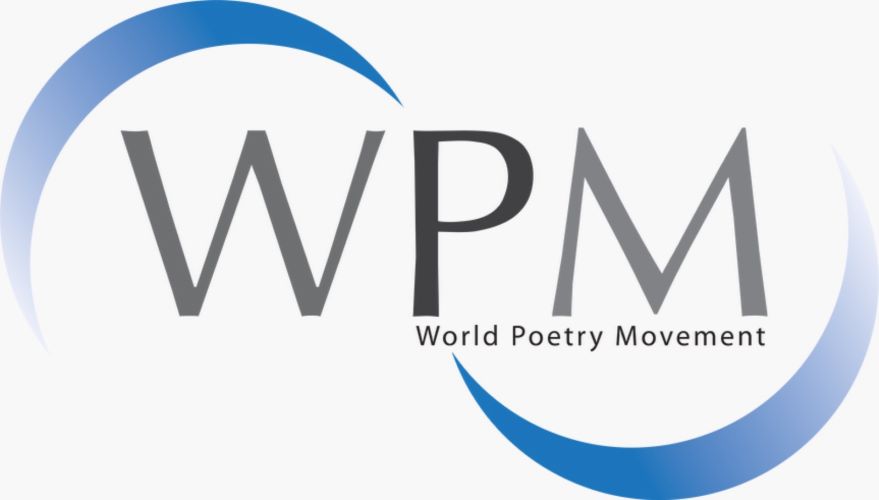 The Appeal to act for immediate ceasefire and humanitarian assistance in Gaza
The Appeal to act for immediate ceasefire and humanitarian assistance in Gaza
“Your Excellency, we, the poets, writers and artists of all nations of the world, are deeply concerned by the barbaric, inhuman and systematic attacks on the people of Palestine in Gaza by the Israeli occupation forces. Media reports and other independent sources have claimed that at least 33,482 Palestinians have been killed and 76,049 wounded since October 7, 2023. Women, children, medical service providers, journalists and humanitarian workers have been indiscriminately targeted. Homes, hospitals, schools and public spaces are demolished, and humanitarian assistance is blocked.
The people of Gaza have become prisoners in their own nation, and are deprived of food, water, shelter and health services. They are denied their basic rights to life and dignity. This act is a clear violation of international human rights and humanitarian laws. It is loud and clear that no countries and territories can be at peace when people in Gaza are subjected to brutal war and historical injustices. Though the United Nations officials also have repeatedly urged for the immediate cessation of this genocidal war, it is very unfortunate that the world governments have failed to make any resolution to this crisis.
As poets, writers, artists and humans, sharing the common home, planet Earth, we have a collective responsibility to bear witness to this heinous crime against humanity. We strongly condemn the atrocities committed by the Israeli forces and appeal that the right to life and dignity of the Palestinian people to be protected by all means and in all circumstances. We maintain that these conflicts should be resolved through peaceful means and mutual dialogues.
We urge that the inhumanity in Gaza must be recognized and the perpetrators must be made accountable. But, as an emergency response, we appeal Your Excellency for your positive action in forging a deal for immediate ceasefire between Israel and Gaza, and in mobilizing the international mechanisms to provide humanitarian reliefs to the people in Gaza, Warmest Regards”
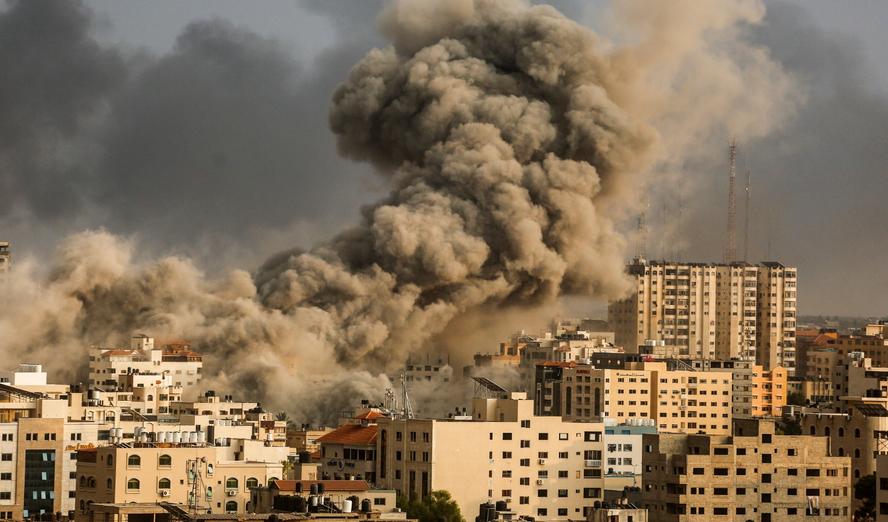 The signing poets are called by WORLD POETRY MOVEMENT (WPM), Hanan Awwad (Palestine), Fernando Rendón (Colombia), President of WPM, Rati Saxena (India), Alex Pausides (Cuba), Siphiwe Nzima (Lesotho), Keshab Sigdel (Nepal), Freddy Ñáñez (Bolivarian Republic of Venezuela), Ana María Oviedo (Bolivarian Republic of Venezuela), Khalid Rassouni (Morocco), Zolani Mkiva (South Africa), Maribel Mora (Chile), Oscar Saavedra (Chile), Vadim Terekhim (Russia), Rosa Chávez (Guatemala), Ashraf Aboul-Yazid (Egypt), Sylvie Marie (Belgium), Achour Fenni (Algeria), Christine Peiying (New Zealand), María Ángeles Pérez López (Spain), Gloria Chvatal (Colombia), Ali Al Ameri (Jordan), Saley Boubé Bali (Niger), Wpm Coordinating Committee, João Fernando André (Angola), Ikhlef Abdelselam (Algeria), Djamel Belarbi (Algeria), Nasser Bakria (Algeria), Mohamed Bouteghane (Algeria), Ahmed Abdelkrim (Algeria), Ahcene Douas (Algeria), Arabi Abdelkader (Algeria), Hmida Ayachi(Algeria), Lakhdar Fellous (Algeria), Bourouis Amar (Algeria), Zineb Laouedj (Algeria), Mohammed Boutaghane (Algeria), Mebsoute Mohamed (Algeria), Nadia Nouacer (Algeria), Kadik Mohamed (Algeria), Mabrouk Bannaoui (Algeria), Salim Abadou (Algeria), Abdelhamid Bourayou (Algeria), Mohamed Daoud (Algeria), Aidouni Salima (Algeria), Fertouni Mouloud (Algeria), Mohamed Lakhdhar Juini (Algeria), Kamel Kerrour (Algeria), Brahim Tazaghart (Algeria), Ahmine Chafik (Algeria), Brahim Boudraa (Algeria), Abdelhakem Belehia (Algeria), Mahdi Berrache (Algeria), Nicolás Antonioli (Argentina), Leopoldo Castilla (Argentina), Gabo Sequeira (Argentina), Dafne Pidemunt (Argentina), Alicia Vincenzini (Argentina), Paula Kersul (Argentina), Sol Zurita (Argentina), Bianca Cacia (Argentina), Lilah Strack (Argentina), Hugo Alberto Luna (Argentina), Silvia Jayo (Argentina), Claudia Christiansen (Argentina), Yanina Audisio Jayo (Argentina), Leandro Frígoli Jayo (Argentina), Liliana Majic Jayo (Argentina), Milvia America Mansilla Jayo (Argentina), Ana Maidana (Argentina), Melina Sánchez (Argentina), Ezra Monsalvo (Argentina), Teuco Castilla (Argentina), Guillermo Almada (Argentina), Samuel Bossini (Argentina), Anandi Fernández (Argentina), Arturo Desimone (Aruba), Quinto Nichoolas (Aruba), Les Wicks (Australia), Juan Garrido Salgado (Australia), Eldar Akhadov (Azerbaijan), Marion Bethel (Bahamas), Aminur Rahman (Bangladesh), Winston Farrell (Barbados), Kerry Belgrave (Barbados), Jacinth Howard (Barbados), Linda Deane (Barbados), Hermas Gbaguidi (Benim), Hosheng Ossi (Belgium), Peter Theunynck (Belgium), Annemarie Estor (Belgium), Frank Pollet (Belgium), Anne Provoost (Belgium), Erik Vlaminck (Belgium), Leonardo Gustavo Ruiz (Bolivarian Republic of Venezuela), Mariana Ruiz Oviedo (Bolivarian Republic of Venezuela), Francisco Sesto (Bolivarian Republic of Venezuela), Luis Alberto Crespo (Bolivarian Republic of Venezuela), Víelsi Arias (Bolivarian Republic of Venezuela), Pedro Ruiz (Bolivarian Republic of Venezuela), Antonio Trujillo (Bolivarian Republic of Venezuela), Miguel Pérez (Bolivarian Republic of Venezuela), Gabriel Jiménez Emán (Bolivarian Republic of Venezuela), José Gregorio Vásquez (Bolivarian Republic of Venezuela), Venus Ledezma (Bolivarian Republic of Venezuela), Yuri Patiño (Bolivarian Republic of Venezuela), Juan Antonio Calzadilla Arreaza (Bolivarian Republic of Venezuela), Nelson Chávez Herrera (Bolivarian Republic of Venezuela), Hermes Vargas (Bolivarian Republic of Venezuela), José Gregorio González Vivas (Bolivarian Republic of Venezuela), Jazmil Mendoza (Bolivarian Republic of Venezuela), Milagro Meleán (Bolivarian Republic of Venezuela), Ennio Tucci (Bolivarian Republic of Venezuela), Ever Delgado (Bolivarian Republic of Venezuela), Rodolfo Quintero Noguera (Bolivarian Republic of Venezuela), Leticia Rojas (Bolivarian Republic of Venezuela), Carlos Pérez (Bolivarian Republic of Venezuela), Leonel Ruiz (Bolivarian Republic of Venezuela), Alexis Liendo (Bolivarian Republic of Venezuela), Benito Mieses (Bolivarian Republic of Venezuela), Pedro Tellez (Bolivarian Republic of Venezuela), Luis Alberto Angulo (Bolivarian Republic of Venezuela), Arnaldo Erazzo (Bolivarian Republic of Venezuela), Gregorio González Vivas (Bolivarian Republic of Venezuela), Elí Caicedo Pinto (Bolivarian Republic of Venezuela), Fidel Flores (Bolivarian Republic of Venezuela), Job Jurado Guevara (Bolivarian Republic of Venezuela), Christian Farías (Bolivarian Republic of Venezuela), Azul Urdaneta (Bolivarian Republic of Venezuela), María Alejandra Rendón (Bolivarian Republic of Venezuela), Rumilda Jiménez (Bolivarian Republic of Venezuela), Vanileybi Rivas (Bolivarian Republic of Venezuela), José Mestre (Bolivarian Republic of Venezuela), Mohamed Hassan (Bolivarian Republic of Venezuela), Ernesto Cañizalez (Bolivarian Republic of Venezuela), Eleazar Marín (Bolivarian Republic of Venezuela), Ninfa Monasterios (Bolivarian Republic of Venezuela), Bartolomé Cavallo (Bolivarian Republic of Venezuela), Marcos Veroes (Bolivarian Republic of Venezuela), Rafael Ortega (Bolivarian Republic of Venezuela), Henry Colmenares (Bolivarian Republic of Venezuela), Max Bembo (Bolivarian Republic of Venezuela), Alexis Escalona (Bolivarian Republic of Venezuela), Skarlet Boguier (Bolivarian Republic of Venezuela), José Gregorio Correa (Bolivarian Republic of Venezuela), Maury Valerio (Bolivarian Republic of Venezuela), Luis Emilio Romero (Bolivarian Republic of Venezuela), Luis Miguel Patiño (Bolivarian Republic of Venezuela), Rodolfo Rodríguez (Bolivarian Republic of Venezuela), Luis Velázquez (Bolivarian Republic of Venezuela), Mirimarit Paradas (Bolivarian Republic of Venezuela), Gonzalo Insignares (Bolivarian Republic of Venezuela), Ildemaro Rosales (Bolivarian Republic of Venezuela), Raúl García Palma (Bolivarian Republic of Venezuela), Isabel Molina (Bolivarian Republic of Venezuela), Emilys González Ordóñez (Bolivarian Republic of Venezuela), Wilmara Borges (Bolivarian Republic of Venezuela), Rubén Darío Roca (Bolivarian Republic of Venezuela), Ramón Ojeda Cruzate (Bolivarian Republic of Venezuela), Fanny Araujo (Bolivarian Republic of Venezuela), Karelia Chávez (Bolivarian Republic of Venezuela), José Ortiz (Bolivarian Republic of Venezuela), Julián Escalona (Bolivarian Republic of Venezuela), Alberto Rodríguez (Bolivarian Republic of Venezuela), Keomar Inojosa (Bolivarian Republic of Venezuela), Nancy Caballero (Bolivarian Republic of Venezuela), Miguel Viloria (Bolivarian Republic of Venezuela), Roger Herrera (Bolivarian Republic of Venezuela), Libeslay Bermúdez (Bolivarian Republic of Venezuela), Alejandro Silva (Bolivarian Republic of Venezuela), Maríajosé Escobar (Bolivarian Republic of Venezuela), William Torrealba (Bolivarian Republic of Venezuela), Ximena Benítez (Bolivarian Republic of Venezuela), Yuraima Salazar (Bolivarian Republic of Venezuela), José Javier Sánchez (Bolivarian Republic of Venezuela), Julio Borromé (Bolivarian Republic of Venezuela), Enmanuel Colmenares (Bolivarian Republic of Venezuela), Lennys Pérez (Bolivarian Republic of Venezuela), Juan Canelones (Bolivarian Republic of Venezuela), Linda Ruiz Terán (Bolivarian Republic of Venezuela), Aquiles Silva (Bolivarian Republic of Venezuela), Marcos González (Bolivarian Republic of Venezuela), José Pérez (Bolivarian Republic of Venezuela), Franklin Fernández (Bolivarian Republic of Venezuela), Clorinda Fuentes (Bolivarian Republic of Venezuela), Jesús Velásquez (Bolivarian Republic of Venezuela), Edgar Hernández (Bolivarian Republic of Venezuela), Rodolfo Rodríguez (Bolivarian Republic of Venezuela), Gisela Delpino (Bolivarian Republic of Venezuela), Benigno Barazarte (Bolivarian Republic of Venezuela), Raúl Blanco (Bolivarian Republic of Venezuela), Eduardo Rivero (Bolivarian Republic of Venezuela), Luis Cabezas (Bolivarian Republic of Venezuela), Argenis Méndez Echenique (Bolivarian Republic of Venezuela), Marisol Pérez Melgarejo (Bolivarian Republic of Venezuela), Adolfo Segundo Medina (Bolivarian Republic of Venezuela), Freddy Araque Contreras (Bolivarian Republic of Venezuela), Manuel Rojas Flores (Bolivarian Republic of Venezuela), Alejo Vivas Ramírez (Bolivarian Republic of Venezuela), Alexander García La Cruz (Bolivarian Republic of Venezuela), Federico Ruiz (Bolivarian Republic of Venezuela), Stephen Marsh Planchart (Bolivarian Republic of Venezuela), Nelson Montiel Acosta (Bolivarian Republic of Venezuela), José Miguel González Rossi (Bolivarian Republic of Venezuela),Lucas Gil (Bolivarian Republic of Venezuela), Marisol Pérez Melgarejo (Bolivarian Republic of Venezuela), Adolfo Segundo Medina (Bolivarian Republic of Venezuela), Freddy Araque Contreras (Bolivarian Republic of Venezuela), Manuel Rojas Flores (Bolivarian Republic of Venezuela), Alejo Vivas Ramírez (Bolivarian Republic of Venezuela), Alexander García La Cruz (Bolivarian Republic of Venezuela).
The signing poets are called by WORLD POETRY MOVEMENT (WPM), Hanan Awwad (Palestine), Fernando Rendón (Colombia), President of WPM, Rati Saxena (India), Alex Pausides (Cuba), Siphiwe Nzima (Lesotho), Keshab Sigdel (Nepal), Freddy Ñáñez (Bolivarian Republic of Venezuela), Ana María Oviedo (Bolivarian Republic of Venezuela), Khalid Rassouni (Morocco), Zolani Mkiva (South Africa), Maribel Mora (Chile), Oscar Saavedra (Chile), Vadim Terekhim (Russia), Rosa Chávez (Guatemala), Ashraf Aboul-Yazid (Egypt), Sylvie Marie (Belgium), Achour Fenni (Algeria), Christine Peiying (New Zealand), María Ángeles Pérez López (Spain), Gloria Chvatal (Colombia), Ali Al Ameri (Jordan), Saley Boubé Bali (Niger), Wpm Coordinating Committee, João Fernando André (Angola), Ikhlef Abdelselam (Algeria), Djamel Belarbi (Algeria), Nasser Bakria (Algeria), Mohamed Bouteghane (Algeria), Ahmed Abdelkrim (Algeria), Ahcene Douas (Algeria), Arabi Abdelkader (Algeria), Hmida Ayachi(Algeria), Lakhdar Fellous (Algeria), Bourouis Amar (Algeria), Zineb Laouedj (Algeria), Mohammed Boutaghane (Algeria), Mebsoute Mohamed (Algeria), Nadia Nouacer (Algeria), Kadik Mohamed (Algeria), Mabrouk Bannaoui (Algeria), Salim Abadou (Algeria), Abdelhamid Bourayou (Algeria), Mohamed Daoud (Algeria), Aidouni Salima (Algeria), Fertouni Mouloud (Algeria), Mohamed Lakhdhar Juini (Algeria), Kamel Kerrour (Algeria), Brahim Tazaghart (Algeria), Ahmine Chafik (Algeria), Brahim Boudraa (Algeria), Abdelhakem Belehia (Algeria), Mahdi Berrache (Algeria), Nicolás Antonioli (Argentina), Leopoldo Castilla (Argentina), Gabo Sequeira (Argentina), Dafne Pidemunt (Argentina), Alicia Vincenzini (Argentina), Paula Kersul (Argentina), Sol Zurita (Argentina), Bianca Cacia (Argentina), Lilah Strack (Argentina), Hugo Alberto Luna (Argentina), Silvia Jayo (Argentina), Claudia Christiansen (Argentina), Yanina Audisio Jayo (Argentina), Leandro Frígoli Jayo (Argentina), Liliana Majic Jayo (Argentina), Milvia America Mansilla Jayo (Argentina), Ana Maidana (Argentina), Melina Sánchez (Argentina), Ezra Monsalvo (Argentina), Teuco Castilla (Argentina), Guillermo Almada (Argentina), Samuel Bossini (Argentina), Anandi Fernández (Argentina), Arturo Desimone (Aruba), Quinto Nichoolas (Aruba), Les Wicks (Australia), Juan Garrido Salgado (Australia), Eldar Akhadov (Azerbaijan), Marion Bethel (Bahamas), Aminur Rahman (Bangladesh), Winston Farrell (Barbados), Kerry Belgrave (Barbados), Jacinth Howard (Barbados), Linda Deane (Barbados), Hermas Gbaguidi (Benim), Hosheng Ossi (Belgium), Peter Theunynck (Belgium), Annemarie Estor (Belgium), Frank Pollet (Belgium), Anne Provoost (Belgium), Erik Vlaminck (Belgium), Leonardo Gustavo Ruiz (Bolivarian Republic of Venezuela), Mariana Ruiz Oviedo (Bolivarian Republic of Venezuela), Francisco Sesto (Bolivarian Republic of Venezuela), Luis Alberto Crespo (Bolivarian Republic of Venezuela), Víelsi Arias (Bolivarian Republic of Venezuela), Pedro Ruiz (Bolivarian Republic of Venezuela), Antonio Trujillo (Bolivarian Republic of Venezuela), Miguel Pérez (Bolivarian Republic of Venezuela), Gabriel Jiménez Emán (Bolivarian Republic of Venezuela), José Gregorio Vásquez (Bolivarian Republic of Venezuela), Venus Ledezma (Bolivarian Republic of Venezuela), Yuri Patiño (Bolivarian Republic of Venezuela), Juan Antonio Calzadilla Arreaza (Bolivarian Republic of Venezuela), Nelson Chávez Herrera (Bolivarian Republic of Venezuela), Hermes Vargas (Bolivarian Republic of Venezuela), José Gregorio González Vivas (Bolivarian Republic of Venezuela), Jazmil Mendoza (Bolivarian Republic of Venezuela), Milagro Meleán (Bolivarian Republic of Venezuela), Ennio Tucci (Bolivarian Republic of Venezuela), Ever Delgado (Bolivarian Republic of Venezuela), Rodolfo Quintero Noguera (Bolivarian Republic of Venezuela), Leticia Rojas (Bolivarian Republic of Venezuela), Carlos Pérez (Bolivarian Republic of Venezuela), Leonel Ruiz (Bolivarian Republic of Venezuela), Alexis Liendo (Bolivarian Republic of Venezuela), Benito Mieses (Bolivarian Republic of Venezuela), Pedro Tellez (Bolivarian Republic of Venezuela), Luis Alberto Angulo (Bolivarian Republic of Venezuela), Arnaldo Erazzo (Bolivarian Republic of Venezuela), Gregorio González Vivas (Bolivarian Republic of Venezuela), Elí Caicedo Pinto (Bolivarian Republic of Venezuela), Fidel Flores (Bolivarian Republic of Venezuela), Job Jurado Guevara (Bolivarian Republic of Venezuela), Christian Farías (Bolivarian Republic of Venezuela), Azul Urdaneta (Bolivarian Republic of Venezuela), María Alejandra Rendón (Bolivarian Republic of Venezuela), Rumilda Jiménez (Bolivarian Republic of Venezuela), Vanileybi Rivas (Bolivarian Republic of Venezuela), José Mestre (Bolivarian Republic of Venezuela), Mohamed Hassan (Bolivarian Republic of Venezuela), Ernesto Cañizalez (Bolivarian Republic of Venezuela), Eleazar Marín (Bolivarian Republic of Venezuela), Ninfa Monasterios (Bolivarian Republic of Venezuela), Bartolomé Cavallo (Bolivarian Republic of Venezuela), Marcos Veroes (Bolivarian Republic of Venezuela), Rafael Ortega (Bolivarian Republic of Venezuela), Henry Colmenares (Bolivarian Republic of Venezuela), Max Bembo (Bolivarian Republic of Venezuela), Alexis Escalona (Bolivarian Republic of Venezuela), Skarlet Boguier (Bolivarian Republic of Venezuela), José Gregorio Correa (Bolivarian Republic of Venezuela), Maury Valerio (Bolivarian Republic of Venezuela), Luis Emilio Romero (Bolivarian Republic of Venezuela), Luis Miguel Patiño (Bolivarian Republic of Venezuela), Rodolfo Rodríguez (Bolivarian Republic of Venezuela), Luis Velázquez (Bolivarian Republic of Venezuela), Mirimarit Paradas (Bolivarian Republic of Venezuela), Gonzalo Insignares (Bolivarian Republic of Venezuela), Ildemaro Rosales (Bolivarian Republic of Venezuela), Raúl García Palma (Bolivarian Republic of Venezuela), Isabel Molina (Bolivarian Republic of Venezuela), Emilys González Ordóñez (Bolivarian Republic of Venezuela), Wilmara Borges (Bolivarian Republic of Venezuela), Rubén Darío Roca (Bolivarian Republic of Venezuela), Ramón Ojeda Cruzate (Bolivarian Republic of Venezuela), Fanny Araujo (Bolivarian Republic of Venezuela), Karelia Chávez (Bolivarian Republic of Venezuela), José Ortiz (Bolivarian Republic of Venezuela), Julián Escalona (Bolivarian Republic of Venezuela), Alberto Rodríguez (Bolivarian Republic of Venezuela), Keomar Inojosa (Bolivarian Republic of Venezuela), Nancy Caballero (Bolivarian Republic of Venezuela), Miguel Viloria (Bolivarian Republic of Venezuela), Roger Herrera (Bolivarian Republic of Venezuela), Libeslay Bermúdez (Bolivarian Republic of Venezuela), Alejandro Silva (Bolivarian Republic of Venezuela), Maríajosé Escobar (Bolivarian Republic of Venezuela), William Torrealba (Bolivarian Republic of Venezuela), Ximena Benítez (Bolivarian Republic of Venezuela), Yuraima Salazar (Bolivarian Republic of Venezuela), José Javier Sánchez (Bolivarian Republic of Venezuela), Julio Borromé (Bolivarian Republic of Venezuela), Enmanuel Colmenares (Bolivarian Republic of Venezuela), Lennys Pérez (Bolivarian Republic of Venezuela), Juan Canelones (Bolivarian Republic of Venezuela), Linda Ruiz Terán (Bolivarian Republic of Venezuela), Aquiles Silva (Bolivarian Republic of Venezuela), Marcos González (Bolivarian Republic of Venezuela), José Pérez (Bolivarian Republic of Venezuela), Franklin Fernández (Bolivarian Republic of Venezuela), Clorinda Fuentes (Bolivarian Republic of Venezuela), Jesús Velásquez (Bolivarian Republic of Venezuela), Edgar Hernández (Bolivarian Republic of Venezuela), Rodolfo Rodríguez (Bolivarian Republic of Venezuela), Gisela Delpino (Bolivarian Republic of Venezuela), Benigno Barazarte (Bolivarian Republic of Venezuela), Raúl Blanco (Bolivarian Republic of Venezuela), Eduardo Rivero (Bolivarian Republic of Venezuela), Luis Cabezas (Bolivarian Republic of Venezuela), Argenis Méndez Echenique (Bolivarian Republic of Venezuela), Marisol Pérez Melgarejo (Bolivarian Republic of Venezuela), Adolfo Segundo Medina (Bolivarian Republic of Venezuela), Freddy Araque Contreras (Bolivarian Republic of Venezuela), Manuel Rojas Flores (Bolivarian Republic of Venezuela), Alejo Vivas Ramírez (Bolivarian Republic of Venezuela), Alexander García La Cruz (Bolivarian Republic of Venezuela), Federico Ruiz (Bolivarian Republic of Venezuela), Stephen Marsh Planchart (Bolivarian Republic of Venezuela), Nelson Montiel Acosta (Bolivarian Republic of Venezuela), José Miguel González Rossi (Bolivarian Republic of Venezuela),Lucas Gil (Bolivarian Republic of Venezuela), Marisol Pérez Melgarejo (Bolivarian Republic of Venezuela), Adolfo Segundo Medina (Bolivarian Republic of Venezuela), Freddy Araque Contreras (Bolivarian Republic of Venezuela), Manuel Rojas Flores (Bolivarian Republic of Venezuela), Alejo Vivas Ramírez (Bolivarian Republic of Venezuela), Alexander García La Cruz (Bolivarian Republic of Venezuela).
 The list of poets joining the appeal has been updated since April 11, 2024. More are following:
The list of poets joining the appeal has been updated since April 11, 2024. More are following:
Valeria Sandi (Bolivia); Sulma Montero (Bolivia); Vilma Tapia (Bolivia); T. J. Dema (Botswana); Thiago Ponce de Moraes (Brazil); Tanussi Cardoso (Brazil); Arthur Ledine (Brazil); Bianca Monteiro Garcia (Brazil); Carlos Orfeu da Conceição (Brazil); Juliana Athayde Silva de Morais (Brazil); Lucas Perito (Brazil); Tatiana Leal (Brazil); Humberto Mello (Brazil); Daiane Pereira Rodrigues (Brazil); Pedro Muñoz (Brazil); Rinzin Rinzin (Bhutan); Gopilal Acharya (Bhutan); Ruzha Velcheva (Bulgaria); Gary Geddes (Canada); Geraldine Mpesse (Cameroon); Aubin-Renaud Alongnifal (Cameroon); Marcel Kemadjou (Cameroom); Jean-Michel Ekele (Cameroon); Paul Atangana Atangana (Cameroon); Soledad Fariña (Chile); Jesús Sepúlveda (Chile); Chinoy (Chile); Luis Eduardo Aguilera (Chile); Margarita Berríos García (Chile); Jaime Quezada (Chile); Rayen Kvyeh (Mapuche, Chile); Francisco Villa (Chile); Amanda Duran (Chile); Daruin Durier Duarte (Colombia); Guillermo Acuña (Costa Rica); Rodolfo Dada (Costa Rica); Cao Shui (China); Ming Di (China); Víctor Gaviria (Colombia); Gabriel Jaime Franco (Colombia); Rómulo Bustos (Colombia); Femando Linero (Colombia); Mónica Lucía Suárez (Colombia); Luis Eduardo Rendón (Colombia); Jairo Guzmán (Colombia); Luz Helena Cordero (Colombia); Pedro Arturo Estrada (Colombia); Lucía Estrada (Colombia); Vito Apüshana (Colombia); Selnich Vivas Hurtado (Colombia); Simón André Chvatal-Rendón (Colombia); Yorlady Ruiz (Colombia); Valentina Rojas (Colombia); María Matilde Rodríguez (Colombia); Carmen Alicia Pérez (Colombia); Ángela García (Colombia); Guillermo Torres (Colombia); Patricia Ariza (Colombia); Ronald Cano (Colombia); Vanessa Torres (Colombia); Manuela Salinas (Colombia); Daniel Montoya (Colombia); Eugenia Sánchez Nieto (Colombia); Diego Rodríguez Saza (Colombia); Yesenia Méndez (Colombia); Yadira Cáceres (Colombia); Elvira Alejandra Quintero (Colombia); Álvaro Malenkov Rendón (Colombia); Lizha Candelo Grueso (Colombia); Jaime Nevado (Colombia); Niyi Itzamatul Ixmucané (Colombia); Jaime Londoño (Colombia); Valentina Rojas (Colombia); Selnich Vivas Hurtado (Colombia); Daniela Zapata (Colombia); Fabio Garrido (Colombia); Mercedes Vivas (Colombia); Edgar Sandino (Colombia); María Isabel García Mayorca (Colombia); Luis Carlos Domínguez (Colombia); Rosaura Mestizo (Colombia); Luz Marina López (Colombia); Marco Antonio Mejía (Colombia); Ángela Briceño (Colombia); Anna Francisca Rodas (Colombia); Juan Sebastián Sánchez (Colombia); Andrés Uribe (Colombia); Francy Liliana Díaz (Colombia); Bárbara Lins (Colombia); Angélica Pineda Silva (Colombia); Rubén Darío Flores (Colombia); Natalia Montejo (Colombia); Claudia Chaverra (Colombia); Edgar Sandino (Colombia); Natalia Montejo (Colombia); William Jiménez (Colombia); Liliana Marentes (Colombia); Daniel Acevedo (Colombia); Gianni Lara Cruz (Colombia); Gustavo Adolfo Garces (Colombia); Omar Ardila (Colombia); Karla Jazmín Arango (Colombia); Luisa Aguilar (Colombia); Manuel Pachón (Colombia); Carlos Fajardo (Colombia); Carlos Alberto Merchán (Colombia); Diana Carolina Forero (Colombia); Amparo Andrade (Colombia); Fausto Marcelo Ávila (Colombia); Ana María García (Colombia); Judith Bautista Fajardo (Colombia); Janeth Rico (Colombia); Jenny Cabrera (Colombia); Inés López Ramírez (Colombia); Félix Molina-Flórez (Colombia); María Tabares (Colombia); Damaris Román (Colombia); Héctor Hernán Hurtado (Colombia); Dorian Villa (Colombia); Víctor Ochoa (Colombia); Mauricio Flórez (Colombia); Michelle López (Colombia); Jaime Lara (Colombia); Rodrigo Jaramillo (Colombia);Carlos Alberto Valencia (Colombia);Osvaldo Sauma (Costa Rica); Arabella Salaverry (Costa Rica); Paola Valverde (Costa Rica); Tomija Bacis (Croatia); Omar González Jiménez (Cuba); Abel Prieto (Cuba); Lilian Alvarez (Cuba); Waldo Leyva (Cuba); Raúl Roa Kouri (Cuba); Heriberto Feraudy Espino (Cuba); Karel Leyva Ferrer (Cuba); Marta Pérez Hernández (Cuba); Marlene Alfonso Ulacia (Cuba); José Nicolás Díaz Roa (Cuba); Alberto Marrero (Cuba); Ariel Diaz (Cuba); Roberto Valera (Cuba); Lillian Alvarez Navarrete (Cuba); German Sánchez (Cuba); Alberto Marrero (Cuba); Carmen González (Cuba); Juanita Conejero (Cuba); Pedro Péglez González (Cuba); Dimarys Águila (Cuba); Nevalis Quintana (Cuba); María de los Ángeles Polo (Cuba); Lucia Cristina Pérez (Cuba); Ariel Brooks Espinosa (Cuba); Cecilia Soto Martinez (Cuba); Kenia Rodríguez Poulout (Cuba); Bertha María Gómez (Cuba); Oscar Oramas Oliva (Cuba); Jesús Úrsula (Cuba); Juan Ramírez (Cuba); Arelys Danger de la Cruz (Cuba); Reinier del Pino Cejas (Cuba);Daisy Brau y grupo Areanle (Cuba); Esperanza Martínez (Cuba); Carlos Tablada (Cuba); Jesus Sama Pacheco (Cuba); Modesto Caballero (Cuba); Marina Akhmedova (Dagestan); Lusmil Castor (Dominican Republic); Rafael Pineda (Dominican Republic); Rei Berroa (Dominican Republic); Tomás Modesto Galán (Dominican Republic); Luis Carlos Musso (Ecuador); Beatriz Beltrán (Ecuador); Paulina Suárez (Ecuador); Cristian Avecillas (Ecuador); Waheed Taweela (Egypt); Eslam Adelaziz (Egypt); Nancy Farouk (Egypt); Mohamed Taha (Egypt); Salma Mokhtar (Egypt); Azza Mohamed (Egypt); Mohamed Yehia (Egypt); William Alfaro (El Salvador); Otoniel Guevara (El Salvador); Lauri García Dueñas (El Salvador); Norma Flores Allende (El Salvador); Juana M. Ramos (El Salvador); Ada Membreño (El Salvador); Richard Berengarten (England); Robin Ouzman Hislop (England); Antonio Martínez Arboleda (England); Jüri Talvet (Estonia); Recaredo Silebo Boturu (Equatorial Guinea); Ethenat Awol (Ethiopia); Alemu Tebeje (Ethiopia); Inger-Mari Aikio (Finland); J.K. Ihalainen (Finland); Philippe Tancelin (France); Émile Boutelier (French Guiana); Jean James Junior (French Guiana); Jean Rolph (French Guiana); Peter Sipeli (Fiji); Christine Siebert (Germany); Christos Koukis (Greece); Eleni Psaralidou (Greece); Dimitris Kraniotis (Greece); Aggeliki Dimouli (Greece); Despoina Haitatzi-Houlioumi (Greece); Logginidis Panagiotis (Greece); Eleni Tatzimaki (Greece); Isidora Malama (Greece); Francis Peters (Grenada); Rudy Alfonzo Gomez Rivas (Guatemala); Marvin S. García Citalán (Guatemala); Francisco Garzaro (Guatemala); David Majano (Guatemala); Ángela Eunice Sacalxot (Guatemala); Pablo Sigüenza (Guatemala); Julio Cumez (Kaqchikel, Guatemala); Raúl Figueroa Sarti (Guatemala); Genesis Ramos (Guatemala); Negma Coy (Guatemala); Carolina Escobar Sartí (Guatemala); Hector Velis (Guatemala); Francisco Conduto de Pina (Guinea Bissau); Alexandra Cretté (Guyana); Miguel Duplan (Guyana); Michée Dasmar (Haiti); Kamran Mir Hazar (Hazaristan); Basir Aang (Hazaristan); Melissa Merlo (Honduras); Dennis Ávila (Honduras); Armando Maldonado (Honduras); Anarella Vélez (Honduras); Livio Ramírez (Honduras); Oscar Amaya (Honduras); Venus Mejía (Honduras); Perla Rivera (Honduras); Galel Cárdenas (Honduras); César Lazo (Honduras); Soledad Altamirano (Honduras); Lety Elvir (Honduras); Alex Darío Rivera (Honduras); Alexis Ordóñez (Honduras); Edilberto Borjas (Honduras); Yadira Eguigure (Honduras); Juan Carlos Caffol (Honduras); Rolando Kattan (Honduras); Salvador Madrid (Honduras); Atila Balaz (Hungría); Thór Stefánsson (Iceland); Birgitta Jónsdóttir (Iceland); K. Satchidanandan (India); Mamang Dai (India); Taniya Chakraborty (India); Prithviraj Taur (India); Prava Samantaray (India); Sukumaran Chelinga (India); Durgaprasad Agrawal (India); Sonu Yashraj (India); Anand Khatri (India); Varsh Mirza (India); Pooja Primvada (India); Kasturika (India); Neelotpal (India); Vijaya Raj Mallika (India); Sukumaran (India); Kedar Mishra (India); Kamal Vora (India); Prithviraj Tore (India); Brajesh Singh (India); Geeta Gloria (India); Sunita Chaturvedi (India); Santosh Kumar (India); Basant Jaitly (India); Anwar Suhail (India); Anupma Tiwari (India); Uma (India); Prem (India); Nand Bhardwaj (India); Biplab Majee (India); Aakriti Kuntal (India); Jinaus Kamvar (India); Govind Mathur (India); Usha Dashora (India); Amien Kamil (Indonesia); Mohsen Rahjerdi (Iran); Nahid Kabiri (Iran); Mohsen Emadi (Iran); Ati Albarkat (Iraq); Abdulhadi Sadoun (Iraq); Hatif Janabi (Iraq); Mohammad Al Aminr (Iraq); Desmond Eagan (Ireland); Gabriel Rosenstock (Ireland); Moya Cannon (Ireland); Katherine Mezzacappa (Ireland); Lia Mills (Ireland); Çağdaş Gökbel (Ireland); Katie Donovan (Ireland); Felicia McCarthy (Ireland); Simon Robinson (Ireland); Ignatius McGovern (Ireland); Therese Kieran (Ireland); Fiona Bolger (Ireland); Ammar Al-najjar (Ireland); Grainne Tobin (Ireland); Dave Duggan (Ireland); Geraldine Mitchell (Ireland);Amir A. Moslemi (Ireland); Ruth Carr (Ireland); Viviana Fiorentino (Ireland); Catherine Dunne (Ireland); Neil Hegarty (Ireland); Moyra Donaldson (Ireland); Evelyn Conlon (Ireland); Shauna Gilligan (Ireland); June Considine (Ireland); Celia de Freine (Ireland); Mia Gallagher (Ireland); Stefano Strazzabosco (Italy); Tomlin Ellis (Jamaica); Opal Palmer Adisa (Jamaica); Judith Falloon-Reid (Jamaica); Amina Blackwood Meeks (Jamaica); Susan Lycett Davis (Jamaica); Fabián M. Thomas (Jamaica); Neto Maceo (Jamaica); Meeks (Jamaica); Adisa (Jamaica); Susan Lycett Davis (Jamaica); Fabian M. Thomas (Jamaica); Kwame MA McPherson (Jamaica); Abhaya Shrestha (Nepal); Hemanta Biwas (Nepal); Jeebesh Rayamajhi (Nepal); Rajeshwar Karki (Nepal); Anupam Roshi (Nepal); Shakuntala Joshi (Nepal); Momila Joshi (Nepal); Lorna Shaughnessy (North Ireland); Govind Mathur (India); Kedar Mishra (India); Suraj Shaw (India); Madan Saini_(India); Kavita Mathur (India); Mahesh (India); Avinendra Maan (India); Ramesh Pandit (India); Beppe Costa (Italy); Stefani di Leo (Italy); Daniela Dante (Italy); Lamberto Garzia (Italy); Massa Massa Bari (Italy); Samuel Dégni (Ivory Coast); Judith Falloon-Reid (Jamaica); Amina Blackwood Meeks (Jamaica); Neto Maceo (Jamaica); Meeks (Jamaica); Adisa (Jamaica); Susan Lycett Davis (Jamaica); Fabian M. Thomas (Jamaica); Kwame MA McPherson (Jamaica); Mari Kashiwagi (Japan); Mohamad Migdady (Jordan); Ulugbek Yesdaulatov (Kazakhstan); Altynai Temirova (Kyrgyzstan); Eralieva Umutkan Polotovna (Kyrgyzstan); Mona Kareen (Kuwait); Abdulah Nammour (Lebanon); Antoine Boulad (Lebanon); Tristan Cassir (Lebanon); Naji Naaman (Lebanon); Rethabile Masilo (Lesotho); Violet Anderson (Lesotho); Bahlakoana Mothobi (Lesotho); Moretlo Likate (Lesotho); Limpho Thoahlane (Lesotho); Rethabile Francis (Lesotho); Likoche Maseru (Lesotho); Borane Kumi (Lesotho); Nokukhanya Hatahata (Lesotho); Naledi Pashe (Lesotho); Kabelo Leboli (Lesotho); Motselisi Hlongwa (Lesotho); Folatsane Makamane (Lesotho); Masekake Molapo (Lesotho); Jeffrey Lebona Mapesela (Lesotho); Lintle Mahloane (Lesotho); Thapiwe Nzima (Lesotho); Kalosi Bantu Ramakhula (Lesotho); Makhebe Seatlana (Lesotho); Baatile Makhetha (Lesotho); Ngakane Bosiu (Lesotho); Ntsane Gerard Molai (Lesotho); Mpho Mohapi (Lesotho); Polly Makotoko (Lesotho); Kano Lebajoa (Lesotho); Liatile Mohale (Lesotho); Lipuo Lelula Maseru (Lesotho); Relebohile Selebalo (Lesotho); Tankiso Lizzy Lethibelane (Lesotho); Lerato Mosollane (Lesotho); Abubacar Jabbie (Lesotho); Thato Rannana (Lesotho); Pulane Rantho (Lesotho); Maapile Moliepe (Lesotho); Yolanda Makhetha (Lesotho); Lesiamo Thatho (Lesotho); Bahlakoana R Tau (Lesotho); Tumisang Malope (Lesotho); Katleho Mohapi (Lesotho); Portia Ramoloko (Lesotho); Mpho Sefali (Lesotho); Sesing Khama (Lesotho); Lefu Kotlolo (Lesotho); Maphunye Likate (Lesotho); Boitumelo Makhoabenyane (Lesotho); Malefu Kotlolo (Lesotho); Mareatile Malebo (Lesotho); Mokoena Molise (Lesotho); Kananelo Likate (Lesotho); Lethuli Mohlomi (Lesotho); Caroline Lelosa (Lesotho); Moleboheng Sefali (Lesotho); Pulane Seitlheko (Lesotho); Kutoane Ts’iu (Lesotho); Karabo Mark Suping (Lesotho); Patricia Jabbeh Wesley (Liberia); Ashur Etwebi (Libya); Hisham Errish (Lybia); Rabie Shrair (Lybia); Rabie Shrair (Libya); Jean-Luc Raharimanana (Madagascar); Paul Sezzie (Malawi); Shivani Shlivagurunathan (Malaysia); Karl Schembri (Malta); Nicole Cage (Martinique); Marie-Françoise Bernard (Martinique); Gérald Désert (Martinique); Christophe Rangoly (Martinique); Umar Timol (Mauritius); Yasmin Alfaro (Mexico); Natalia Toledo (Mexico); George Reyes (Mexico); Manuel Sauceverde (Mexico); José Ángel Leyva (Mexico); Manuel Cuautle (Mexico); Roberto Acuña (Mexico); Chary Gumeta (Mexico); Sixto Cabrera González (Mexico); Juan Schulz (Mexico); Grissel Gómez Estrada (Mexico); Roberto Arizmendi (Mexico); José Cruz (Mexico); Evelia Flores (Mexico); Octavio Jiménez (Mexico); Cynthia Pech (Mexico); Luis Enrike Moscoso (México).

More poets from different countries also signed the appeal.
Galsansukh Dejidmaa (Mongolia)
Hadaa Sendoo (Mongolia)
Sreten Vujović (Montenegro)
Yvonne Weekes (Montserrat)
Zelma White (Montserrat)
Hassan El Ouazzani (Morocco)
Mohamed Ahmed Bennis (Morocco)
Mohamed Hajji Mohamed (Morocco)
Mohamed Miloud Gharrafi (Morocco)
Mohammed El Amraoui (Morocco)
Aziz Azrhai (Morocco)
Ikram Abdi (Morocco)
Salah Boussrif (Morocco)
Jamal Elmoatassim-billah (Morocco – Canada)
Rachid Elyacouti (Morocco)
Amosse Mucavele (Mozambique)
Keamogetsi Joseph Molapong (Namibia)
Balu Thap (Nepal)
Balu Thap (Nepal)
Abhaya Shrestha (Nepal)
Hemanta Biwas (Nepal)
Jeebesh Rayamajhi (Nepal)
Rajeshwar Karki (Nepal)
Anupam Roshi (Nepal)
Shakuntala Joshi (Nepal)
Momila Joshi (Nepal)
Denis Pourawa (New Caledonia)
Christian Karl Stead (New Zealand)
Adamou Idé (Niger)
Inoussa Maman (Niger)
Abdoul Moumouni (Niger)
Zakariyaou Seybou (Niger)
Fatima Mashoud (Niger)
Iro Salif (Niger)
Chamsou Maiga (Niger)
Abdou Miko (Niger)
Abdoul Wahab Soumana (Niger)
Boukary Mamane Daouda (Niger)
Mayaki Doge (Niger)
Hannu Afere (Nigeria)
Tanure Ojaide (Nigeria)
Jan Erik Vold (Norway)
Erling Kittelsen (Norway)
Abdullah Habib (Oman)
Ashraf Fayad (Palestina)
Moheeb Barghouthi (Palestine)
Ghadeer Abusneineh (Palestine)
Yousef Abdelaziz (Palestine – Jordan)
Isam Alsadi (Palestine – Jordan)
Nabil Anani (Palestine)
Bassel Salen (Palestine)
Samar Alghuol (Palestine)
Giovanna Bennedetti (Panama)
Imdad Aakash (Pakistan)
Techi Cusmanich (Paraguay)
Mónica Laneri (Paraguay)
Susy Delgado (Paraguay)
Onix Fernández Báez (Paraguay)
Miguel Ángel Fernández (Paraguay)
Guido Rodríguez Alcalá (Paraguay)
Eduardo González (Paraguay)
Marta Violeta Garcete (Paraguay)
Ricardo de la Vega (Paraguay)
Carolina Mariana Cáceres (Paraguay)
Charlize Clarke (Paraguay)
Mario Casartelli (Paraguay)
César Aponte (Paraguay)
Proyecto Arcadia (Paraguay)
Chiquita Barreto (Paraguay)
Arte Cultura. La Tocatta (Paraguay)
Roque de Pablo (Paraguay)
Sara Schupmann (Paraguay)
Juan Carlos Rojas (Paraguay)
Cala del Puerto (Paraguay)
Morena Sosa (Paraguay)
Milton Siegfried (Paraguay)
Kalya Luz (Paraguay)
Sofia Barbery (Paraguay)
Rosa Barbery (Paraguay)
Nelly Barbery (Paraguay)
Tury Talavera (Paraguay)
Mariale Enciso (Paraguay)
Sol Barbery (Paraguay)
Ricardo Flecha (Paraguay)
Trovadores de cada canción (Paraguay)
Maria Lourdes Zaragoza (Paraguay)
Ana Ramirez (Paraguay)
Rubén Domínguez Alvarenga (Paraguay)
Filomena Bejarano (Paraguay)
Enrique Sánchez Hernani (Peru)
Hildebrando Pérez Grande (Peru)
Marco Martos (Perú)
Gonzalo Espino (Peru)
Diego Alonso Sánchez Barrueto (Peru)
Katherine Medina Rondón (Peru)
Guillermo Saravia (Peru)
Miguel Lescano (Peru)
Elie Angles (Peru)
Tilsa Otta (Peru)
Tatiana Berger (Peru)
Natalie Celio (Peru)
Rosa Maria Díaz (Peru)
Paul Guillén (Peru)
Luis La Hoz (Peru)
Czar Gutiérrez Luis La Hoz (Peru)
Rodolfo Ybarra Luis La Hoz (Peru)
Mary Soto Luis La Hoz (Peru)
Edián Novoa (Peru)
Victor Vich (Peru)
Fernando González-Olaechea (Peru)
Lucas Cornejo Pasara (Peru)
Diana Miloslavich (Peru)
Jorge Espinoza Sánchez (Peru)
James Tian (Philiphines)
Marra Lanot (Philippines)
Ostap Nozap (Polland)
Santi Hernández (Puerto Rico)
Soad Alkuwari (Qatar)
Fida Alhail Alshooqtair (Qatar)
Alimirza (Qatar)
Lolita Mongo (Reunion Islands)
Ko Un (Republic of Korea)
Fahredin Shehu (Republic of Kosovo)
Natalia Kharlampyeva (Republic of Saja)
Ion Deaconescu (Romania)
Elena Armenescu (Romania)
Abdullah Issa (Palestine –Russia)
Svetlana Makarova (Russia)
Lyudmila Murashova (Russia)
Lidiya Davydenko (Russia)
Svetlana Savitskaya (Russia)
Alexander Gromov (Russia)
Natalia Kharlampyeva (Russia)
Elena Mashukova (Russia)
Marina Akhmedova (Russia)
Igor Tyulenev (Russia)
Lilia Okhotnitskaya (Russia)
Jane King (Saint Lucia)
Alvinus Melius (Saint Lucia)
Lasana Sekou (Saint Martin)
Lafleur Cockburn (Saint Vincent and the Grenadines)
Jaykel Mars (Saint Vincent and the Grenadines)
Milena Ercolani (San Marino)
Fowziyah Abukhalid (Saudi Arabia)
Christie Williamson (Scotland)
Aleksandar Novaković (Serbia)
Cheikh Tidiane Gaye (Senegal)
Oumar Farouk Sesay (Sierra Leone)
Issa Kanu (Sierra Leone)
Princess Mildred Kailey (Sierra Leone)
Mohamed Fuad Kamara (Sierra Leone)
Joseph Leema Peters-Macauley (Sierra Leone)
Lord Emmanuel Joseph (Sierra Leone)
Ibrahim Mustapha Fofanah (Sierra Leone)
Peter Semolic (Slovenia)
Brane Mozetic (Slovenia)
Jordi Virallonga (Spain)
Isabel Miguel (Spain)
Diana Bujarrabal (Spain)
Manuel Palencia (Spain)
Tomás Graves (Spain)
Amparo Arróspide (Spain)
Olivier Herrera (Spain)
Antonio M. Avilés (Spain)
Eladio Méndez (Spain)
Lola López Martín (Spain)
Javier Gil Martín (Spain)
Iosu Moracho (Spain)
Raquel Ramírez de Arellano (Spain)
Pedro Enríquez (Spain)
Santiago Sobrino (Spain)
Marie-Vida Obeid (Spain)
Carmen Huete (Spain)
José María Alfaya (Spain)
Antonio Cubelos (Spain)
Alberto Muñoz (Spain)
Rosario de Gorostegui (Spain)
Miguel Ángel García González (Spain)
Nieves Álvarez (Spain)
Fran Soto (Spain)
Milagros López (Spain)
Manuela Temporelli Montiel (Spain)
Villo Argumánez (Spain)
Rosana Acquaroni (Spain)
Gabriel Alejo Jacobkis (Spain)
El Dorado – Asociación cultural (Spain)
Eddie J. Bermúdez (Spain)
Javier Muñiz (Spain)
Ana Belén Martín Vázquez (Spain)
Noni Benegas (Spain)
Emma Fondevila (Spain)
Emilio Muñiz (Spain)
Dori Campos (Spain)
Luisa Antolín Villota (Spain)
Margarita Ballester Figueras (Spain)
Llucia Palliser (Spain)
José Luis Fernández (Spain)
Emily Roberts (Spain)
Gsús Bonilla (Spain)
Joan de la Vega (Spain)
Luz Pichel (Spain)
Alfredo Piquer (Spain)
Ana Ares (Spain)
Isabel Miguel (Spain)
Eva Hiernaux (Spain)
Esther Veintimilla (Spain)
Luis Adalid (Spain)
Mª Cinta Montagut (Spain)
Raúl Nieto (Spain)
Nieves Muriel (Spain)
Ricardo Pochtar (Spain)
Jesús Ge (Spain)
Manuel Fabián Trigos Baena (Spain)
Nacho Escuin (Spain)
Jorge García Torrego (Spain)
Cristina Morano (Spain)
Rafael G. Cáccamo (Spain)
Andrea Aguirre (Spain)
Ángeles Fernangómez (Spain)
Marga Blanco Samos (Spain)
Gonzalo Escarpa (Spain)
Silvia Cuevas Morales (Spain)
Isabel Pose (Spain)
Pepo Paz Saz (Spain)
Rocío Ordóñez (Spain)
Nieves Muñoz (Spain)
Inma Chacón (Spain)
Marta Sanz (Spain)
Amparo Pérez Arróspide (Spain)
Susana Obrero Tejero (Spain)
Marisa Bello (Spain)
Eva Navarro (Spain)
Arturo Tendero (Spain)
Belén García-Nieto (Spain)
Susana Muñoz (Spain)
Ela Sandín Prior (Spain)
Ángel Aguilar Bañón (Spain)
Frutos Soriano (Spain)
Eduardo Moreno (Spain)
Nicasio Sanchís (Spain)
Javier Lorenzo Candel (Spain)
León Molina Pantiga (Spain)
Paloma Espartero Martínez (Spain)
Matías Muñiz Borja (Spain)
María Asunción Caballero Muñoz-Reja (Spain)
Salomé Ballesteros (Spain)
Andrea López Montero (Spain)
María Concepción Álvarez García (Spain)
María Torvisco (Spain)
Mirian Carrera (Spain)
Jimena Cid (Spain)
Pilar Trol (Spain)
Pedro Díaz (Spain)
José Luis Esparcia (Spain)
Pablo Martín Coble (Spain)
Eva Chinchilla (Spain)
Lucrecia López Guisado (Spain)
Vera Moreno (Spain)
Dolores Méndez Méndez (Spain)
Juana Castro (Spain)
Pedro Tébar (Spain)
Pepe Ramos (Spain)
David Foronda (Spain)
Lola Álvarez Feito (Spain)
Olga Ruiz (Spain)
Daría Rolland Pérez (Spain)
Jean Claude Rolland (Spain)
Murillo Casas (Spain)
Daniel de Culla (Spain)
Matteo Barbato (Spain)
David Otero (Spain)
Álvaro Salvador (Spain)
Samir Delgado (Spain)
Nieves Díaz (Spain)
Victoria Yagüe Martínez (Spain)
Santiago Úbeda Cuadrado (Spain)
Elisa Rueda (Spain)
José Manuel Carcasés Cortés (Spain)
- Luna Pérez Gastón (Spain)
Aurora Saura (Spain)
Rosario Guarino (Spain)
Cristina Morano (Spain)
José Antonio Martínez Muñoz (Spain)
Jesús Antonio Ruiz Munuera (Spain)
Inmaculada Pelegrín (Spain)
Cristina Guirao Mirón (Spain)
Mª Loida Ruiz Rodríguez (Spain)
Roberto Ruiz Antúnez (Spain)
Begoña Montes Zofío (Spain-Brazil)
Jorge Molinero (Spain)
Shirani Rajapakse (Sri Lanka)
Peter Rorvik (South Africa)
Zohra Abdul Hamid (South Africa)
Tarek Eltayeb (Sudán)
Lina Tibi (Syria)
Monzer Masri (Syria)
Maram Al Masri (Syria)
Maram al Masri (Syria)
Dick Emanuelsson (Sweden)
Jochen Kelter (Switzerland)
Chiranan Pitpreecha (Thailand)
Abdukakhor Kosim (Tayikistán)
Patron Henekou (Togo)
Tahar Bekri (Tunisia)
Radhouane Ajroudi (Tunisia)
Houda Al Hermi (Tunisia)
Khedija Gadoum (Tunisia)
Chemseddine Elouni (Tunisia)
Fadıl Oktay (Turkiye)
Metin Cengiz (Turkey)
Matt Sedillo (United States)
Joy Harjo (United States)
Quincy Troupe (United States)
Allinson Hedge Cooke (United States)
Gene Grabiner (United States)
Nelson Traba (Uruguay)
Khosiat Rustam (Uzbekistan)
Huu Viet (Vietnam)
Mai Van Phan (Vietnam)
Mohammed Al-Lawzi (Yemen)
Nasir Aijaz (Pakistan)
Ayaz Gul (Pakistan)
Dr. Akash Ansari (Pakistan)
Dr. Mushtaque Phul (Pakistan)
_______________________
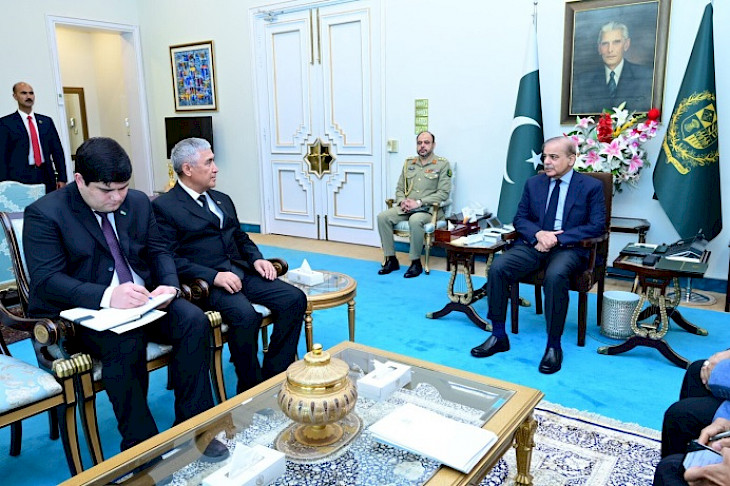
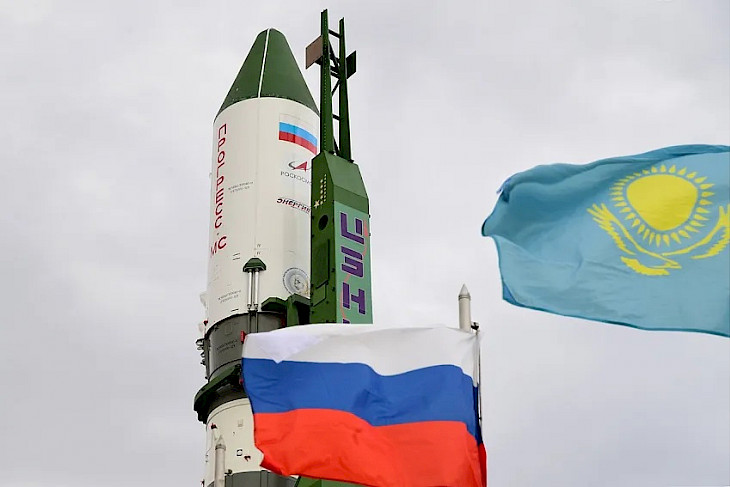
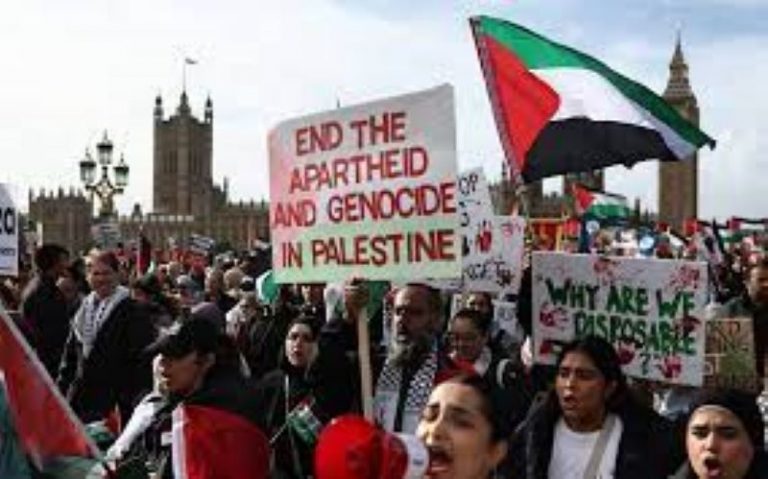
 The Appeal to act for immediate ceasefire and humanitarian assistance in Gaza
The Appeal to act for immediate ceasefire and humanitarian assistance in Gaza The signing poets are called by WORLD POETRY MOVEMENT (WPM), Hanan Awwad (Palestine), Fernando Rendón (Colombia), President of WPM, Rati Saxena (India), Alex Pausides (Cuba), Siphiwe Nzima (Lesotho), Keshab Sigdel (Nepal), Freddy Ñáñez (Bolivarian Republic of Venezuela), Ana María Oviedo (Bolivarian Republic of Venezuela), Khalid Rassouni (Morocco), Zolani Mkiva (South Africa), Maribel Mora (Chile), Oscar Saavedra (Chile), Vadim Terekhim (Russia), Rosa Chávez (Guatemala), Ashraf Aboul-Yazid (Egypt), Sylvie Marie (Belgium), Achour Fenni (Algeria), Christine Peiying (New Zealand), María Ángeles Pérez López (Spain), Gloria Chvatal (Colombia), Ali Al Ameri (Jordan), Saley Boubé Bali (Niger), Wpm Coordinating Committee, João Fernando André (Angola), Ikhlef Abdelselam (Algeria), Djamel Belarbi (Algeria), Nasser Bakria (Algeria), Mohamed Bouteghane (Algeria), Ahmed Abdelkrim (Algeria), Ahcene Douas (Algeria), Arabi Abdelkader (Algeria), Hmida Ayachi(Algeria), Lakhdar Fellous (Algeria), Bourouis Amar (Algeria), Zineb Laouedj (Algeria), Mohammed Boutaghane (Algeria), Mebsoute Mohamed (Algeria), Nadia Nouacer (Algeria), Kadik Mohamed (Algeria), Mabrouk Bannaoui (Algeria), Salim Abadou (Algeria), Abdelhamid Bourayou (Algeria), Mohamed Daoud (Algeria), Aidouni Salima (Algeria), Fertouni Mouloud (Algeria), Mohamed Lakhdhar Juini (Algeria), Kamel Kerrour (Algeria), Brahim Tazaghart (Algeria), Ahmine Chafik (Algeria), Brahim Boudraa (Algeria), Abdelhakem Belehia (Algeria), Mahdi Berrache (Algeria), Nicolás Antonioli (Argentina), Leopoldo Castilla (Argentina), Gabo Sequeira (Argentina), Dafne Pidemunt (Argentina), Alicia Vincenzini (Argentina), Paula Kersul (Argentina), Sol Zurita (Argentina), Bianca Cacia (Argentina), Lilah Strack (Argentina), Hugo Alberto Luna (Argentina), Silvia Jayo (Argentina), Claudia Christiansen (Argentina), Yanina Audisio Jayo (Argentina), Leandro Frígoli Jayo (Argentina), Liliana Majic Jayo (Argentina), Milvia America Mansilla Jayo (Argentina), Ana Maidana (Argentina), Melina Sánchez (Argentina), Ezra Monsalvo (Argentina), Teuco Castilla (Argentina), Guillermo Almada (Argentina), Samuel Bossini (Argentina), Anandi Fernández (Argentina), Arturo Desimone (Aruba), Quinto Nichoolas (Aruba), Les Wicks (Australia), Juan Garrido Salgado (Australia), Eldar Akhadov (Azerbaijan), Marion Bethel (Bahamas), Aminur Rahman (Bangladesh), Winston Farrell (Barbados), Kerry Belgrave (Barbados), Jacinth Howard (Barbados), Linda Deane (Barbados), Hermas Gbaguidi (Benim), Hosheng Ossi (Belgium), Peter Theunynck (Belgium), Annemarie Estor (Belgium), Frank Pollet (Belgium), Anne Provoost (Belgium), Erik Vlaminck (Belgium), Leonardo Gustavo Ruiz (Bolivarian Republic of Venezuela), Mariana Ruiz Oviedo (Bolivarian Republic of Venezuela), Francisco Sesto (Bolivarian Republic of Venezuela), Luis Alberto Crespo (Bolivarian Republic of Venezuela), Víelsi Arias (Bolivarian Republic of Venezuela), Pedro Ruiz (Bolivarian Republic of Venezuela), Antonio Trujillo (Bolivarian Republic of Venezuela), Miguel Pérez (Bolivarian Republic of Venezuela), Gabriel Jiménez Emán (Bolivarian Republic of Venezuela), José Gregorio Vásquez (Bolivarian Republic of Venezuela), Venus Ledezma (Bolivarian Republic of Venezuela), Yuri Patiño (Bolivarian Republic of Venezuela), Juan Antonio Calzadilla Arreaza (Bolivarian Republic of Venezuela), Nelson Chávez Herrera (Bolivarian Republic of Venezuela), Hermes Vargas (Bolivarian Republic of Venezuela), José Gregorio González Vivas (Bolivarian Republic of Venezuela), Jazmil Mendoza (Bolivarian Republic of Venezuela), Milagro Meleán (Bolivarian Republic of Venezuela), Ennio Tucci (Bolivarian Republic of Venezuela), Ever Delgado (Bolivarian Republic of Venezuela), Rodolfo Quintero Noguera (Bolivarian Republic of Venezuela), Leticia Rojas (Bolivarian Republic of Venezuela), Carlos Pérez (Bolivarian Republic of Venezuela), Leonel Ruiz (Bolivarian Republic of Venezuela), Alexis Liendo (Bolivarian Republic of Venezuela), Benito Mieses (Bolivarian Republic of Venezuela), Pedro Tellez (Bolivarian Republic of Venezuela), Luis Alberto Angulo (Bolivarian Republic of Venezuela), Arnaldo Erazzo (Bolivarian Republic of Venezuela), Gregorio González Vivas (Bolivarian Republic of Venezuela), Elí Caicedo Pinto (Bolivarian Republic of Venezuela), Fidel Flores (Bolivarian Republic of Venezuela), Job Jurado Guevara (Bolivarian Republic of Venezuela), Christian Farías (Bolivarian Republic of Venezuela), Azul Urdaneta (Bolivarian Republic of Venezuela), María Alejandra Rendón (Bolivarian Republic of Venezuela), Rumilda Jiménez (Bolivarian Republic of Venezuela), Vanileybi Rivas (Bolivarian Republic of Venezuela), José Mestre (Bolivarian Republic of Venezuela), Mohamed Hassan (Bolivarian Republic of Venezuela), Ernesto Cañizalez (Bolivarian Republic of Venezuela), Eleazar Marín (Bolivarian Republic of Venezuela), Ninfa Monasterios (Bolivarian Republic of Venezuela), Bartolomé Cavallo (Bolivarian Republic of Venezuela), Marcos Veroes (Bolivarian Republic of Venezuela), Rafael Ortega (Bolivarian Republic of Venezuela), Henry Colmenares (Bolivarian Republic of Venezuela), Max Bembo (Bolivarian Republic of Venezuela), Alexis Escalona (Bolivarian Republic of Venezuela), Skarlet Boguier (Bolivarian Republic of Venezuela), José Gregorio Correa (Bolivarian Republic of Venezuela), Maury Valerio (Bolivarian Republic of Venezuela), Luis Emilio Romero (Bolivarian Republic of Venezuela), Luis Miguel Patiño (Bolivarian Republic of Venezuela), Rodolfo Rodríguez (Bolivarian Republic of Venezuela), Luis Velázquez (Bolivarian Republic of Venezuela), Mirimarit Paradas (Bolivarian Republic of Venezuela), Gonzalo Insignares (Bolivarian Republic of Venezuela), Ildemaro Rosales (Bolivarian Republic of Venezuela), Raúl García Palma (Bolivarian Republic of Venezuela), Isabel Molina (Bolivarian Republic of Venezuela), Emilys González Ordóñez (Bolivarian Republic of Venezuela), Wilmara Borges (Bolivarian Republic of Venezuela), Rubén Darío Roca (Bolivarian Republic of Venezuela), Ramón Ojeda Cruzate (Bolivarian Republic of Venezuela), Fanny Araujo (Bolivarian Republic of Venezuela), Karelia Chávez (Bolivarian Republic of Venezuela), José Ortiz (Bolivarian Republic of Venezuela), Julián Escalona (Bolivarian Republic of Venezuela), Alberto Rodríguez (Bolivarian Republic of Venezuela), Keomar Inojosa (Bolivarian Republic of Venezuela), Nancy Caballero (Bolivarian Republic of Venezuela), Miguel Viloria (Bolivarian Republic of Venezuela), Roger Herrera (Bolivarian Republic of Venezuela), Libeslay Bermúdez (Bolivarian Republic of Venezuela), Alejandro Silva (Bolivarian Republic of Venezuela), Maríajosé Escobar (Bolivarian Republic of Venezuela), William Torrealba (Bolivarian Republic of Venezuela), Ximena Benítez (Bolivarian Republic of Venezuela), Yuraima Salazar (Bolivarian Republic of Venezuela), José Javier Sánchez (Bolivarian Republic of Venezuela), Julio Borromé (Bolivarian Republic of Venezuela), Enmanuel Colmenares (Bolivarian Republic of Venezuela), Lennys Pérez (Bolivarian Republic of Venezuela), Juan Canelones (Bolivarian Republic of Venezuela), Linda Ruiz Terán (Bolivarian Republic of Venezuela), Aquiles Silva (Bolivarian Republic of Venezuela), Marcos González (Bolivarian Republic of Venezuela), José Pérez (Bolivarian Republic of Venezuela), Franklin Fernández (Bolivarian Republic of Venezuela), Clorinda Fuentes (Bolivarian Republic of Venezuela), Jesús Velásquez (Bolivarian Republic of Venezuela), Edgar Hernández (Bolivarian Republic of Venezuela), Rodolfo Rodríguez (Bolivarian Republic of Venezuela), Gisela Delpino (Bolivarian Republic of Venezuela), Benigno Barazarte (Bolivarian Republic of Venezuela), Raúl Blanco (Bolivarian Republic of Venezuela), Eduardo Rivero (Bolivarian Republic of Venezuela), Luis Cabezas (Bolivarian Republic of Venezuela), Argenis Méndez Echenique (Bolivarian Republic of Venezuela), Marisol Pérez Melgarejo (Bolivarian Republic of Venezuela), Adolfo Segundo Medina (Bolivarian Republic of Venezuela), Freddy Araque Contreras (Bolivarian Republic of Venezuela), Manuel Rojas Flores (Bolivarian Republic of Venezuela), Alejo Vivas Ramírez (Bolivarian Republic of Venezuela), Alexander García La Cruz (Bolivarian Republic of Venezuela), Federico Ruiz (Bolivarian Republic of Venezuela), Stephen Marsh Planchart (Bolivarian Republic of Venezuela), Nelson Montiel Acosta (Bolivarian Republic of Venezuela), José Miguel González Rossi (Bolivarian Republic of Venezuela),Lucas Gil (Bolivarian Republic of Venezuela), Marisol Pérez Melgarejo (Bolivarian Republic of Venezuela), Adolfo Segundo Medina (Bolivarian Republic of Venezuela), Freddy Araque Contreras (Bolivarian Republic of Venezuela), Manuel Rojas Flores (Bolivarian Republic of Venezuela), Alejo Vivas Ramírez (Bolivarian Republic of Venezuela), Alexander García La Cruz (Bolivarian Republic of Venezuela).
The signing poets are called by WORLD POETRY MOVEMENT (WPM), Hanan Awwad (Palestine), Fernando Rendón (Colombia), President of WPM, Rati Saxena (India), Alex Pausides (Cuba), Siphiwe Nzima (Lesotho), Keshab Sigdel (Nepal), Freddy Ñáñez (Bolivarian Republic of Venezuela), Ana María Oviedo (Bolivarian Republic of Venezuela), Khalid Rassouni (Morocco), Zolani Mkiva (South Africa), Maribel Mora (Chile), Oscar Saavedra (Chile), Vadim Terekhim (Russia), Rosa Chávez (Guatemala), Ashraf Aboul-Yazid (Egypt), Sylvie Marie (Belgium), Achour Fenni (Algeria), Christine Peiying (New Zealand), María Ángeles Pérez López (Spain), Gloria Chvatal (Colombia), Ali Al Ameri (Jordan), Saley Boubé Bali (Niger), Wpm Coordinating Committee, João Fernando André (Angola), Ikhlef Abdelselam (Algeria), Djamel Belarbi (Algeria), Nasser Bakria (Algeria), Mohamed Bouteghane (Algeria), Ahmed Abdelkrim (Algeria), Ahcene Douas (Algeria), Arabi Abdelkader (Algeria), Hmida Ayachi(Algeria), Lakhdar Fellous (Algeria), Bourouis Amar (Algeria), Zineb Laouedj (Algeria), Mohammed Boutaghane (Algeria), Mebsoute Mohamed (Algeria), Nadia Nouacer (Algeria), Kadik Mohamed (Algeria), Mabrouk Bannaoui (Algeria), Salim Abadou (Algeria), Abdelhamid Bourayou (Algeria), Mohamed Daoud (Algeria), Aidouni Salima (Algeria), Fertouni Mouloud (Algeria), Mohamed Lakhdhar Juini (Algeria), Kamel Kerrour (Algeria), Brahim Tazaghart (Algeria), Ahmine Chafik (Algeria), Brahim Boudraa (Algeria), Abdelhakem Belehia (Algeria), Mahdi Berrache (Algeria), Nicolás Antonioli (Argentina), Leopoldo Castilla (Argentina), Gabo Sequeira (Argentina), Dafne Pidemunt (Argentina), Alicia Vincenzini (Argentina), Paula Kersul (Argentina), Sol Zurita (Argentina), Bianca Cacia (Argentina), Lilah Strack (Argentina), Hugo Alberto Luna (Argentina), Silvia Jayo (Argentina), Claudia Christiansen (Argentina), Yanina Audisio Jayo (Argentina), Leandro Frígoli Jayo (Argentina), Liliana Majic Jayo (Argentina), Milvia America Mansilla Jayo (Argentina), Ana Maidana (Argentina), Melina Sánchez (Argentina), Ezra Monsalvo (Argentina), Teuco Castilla (Argentina), Guillermo Almada (Argentina), Samuel Bossini (Argentina), Anandi Fernández (Argentina), Arturo Desimone (Aruba), Quinto Nichoolas (Aruba), Les Wicks (Australia), Juan Garrido Salgado (Australia), Eldar Akhadov (Azerbaijan), Marion Bethel (Bahamas), Aminur Rahman (Bangladesh), Winston Farrell (Barbados), Kerry Belgrave (Barbados), Jacinth Howard (Barbados), Linda Deane (Barbados), Hermas Gbaguidi (Benim), Hosheng Ossi (Belgium), Peter Theunynck (Belgium), Annemarie Estor (Belgium), Frank Pollet (Belgium), Anne Provoost (Belgium), Erik Vlaminck (Belgium), Leonardo Gustavo Ruiz (Bolivarian Republic of Venezuela), Mariana Ruiz Oviedo (Bolivarian Republic of Venezuela), Francisco Sesto (Bolivarian Republic of Venezuela), Luis Alberto Crespo (Bolivarian Republic of Venezuela), Víelsi Arias (Bolivarian Republic of Venezuela), Pedro Ruiz (Bolivarian Republic of Venezuela), Antonio Trujillo (Bolivarian Republic of Venezuela), Miguel Pérez (Bolivarian Republic of Venezuela), Gabriel Jiménez Emán (Bolivarian Republic of Venezuela), José Gregorio Vásquez (Bolivarian Republic of Venezuela), Venus Ledezma (Bolivarian Republic of Venezuela), Yuri Patiño (Bolivarian Republic of Venezuela), Juan Antonio Calzadilla Arreaza (Bolivarian Republic of Venezuela), Nelson Chávez Herrera (Bolivarian Republic of Venezuela), Hermes Vargas (Bolivarian Republic of Venezuela), José Gregorio González Vivas (Bolivarian Republic of Venezuela), Jazmil Mendoza (Bolivarian Republic of Venezuela), Milagro Meleán (Bolivarian Republic of Venezuela), Ennio Tucci (Bolivarian Republic of Venezuela), Ever Delgado (Bolivarian Republic of Venezuela), Rodolfo Quintero Noguera (Bolivarian Republic of Venezuela), Leticia Rojas (Bolivarian Republic of Venezuela), Carlos Pérez (Bolivarian Republic of Venezuela), Leonel Ruiz (Bolivarian Republic of Venezuela), Alexis Liendo (Bolivarian Republic of Venezuela), Benito Mieses (Bolivarian Republic of Venezuela), Pedro Tellez (Bolivarian Republic of Venezuela), Luis Alberto Angulo (Bolivarian Republic of Venezuela), Arnaldo Erazzo (Bolivarian Republic of Venezuela), Gregorio González Vivas (Bolivarian Republic of Venezuela), Elí Caicedo Pinto (Bolivarian Republic of Venezuela), Fidel Flores (Bolivarian Republic of Venezuela), Job Jurado Guevara (Bolivarian Republic of Venezuela), Christian Farías (Bolivarian Republic of Venezuela), Azul Urdaneta (Bolivarian Republic of Venezuela), María Alejandra Rendón (Bolivarian Republic of Venezuela), Rumilda Jiménez (Bolivarian Republic of Venezuela), Vanileybi Rivas (Bolivarian Republic of Venezuela), José Mestre (Bolivarian Republic of Venezuela), Mohamed Hassan (Bolivarian Republic of Venezuela), Ernesto Cañizalez (Bolivarian Republic of Venezuela), Eleazar Marín (Bolivarian Republic of Venezuela), Ninfa Monasterios (Bolivarian Republic of Venezuela), Bartolomé Cavallo (Bolivarian Republic of Venezuela), Marcos Veroes (Bolivarian Republic of Venezuela), Rafael Ortega (Bolivarian Republic of Venezuela), Henry Colmenares (Bolivarian Republic of Venezuela), Max Bembo (Bolivarian Republic of Venezuela), Alexis Escalona (Bolivarian Republic of Venezuela), Skarlet Boguier (Bolivarian Republic of Venezuela), José Gregorio Correa (Bolivarian Republic of Venezuela), Maury Valerio (Bolivarian Republic of Venezuela), Luis Emilio Romero (Bolivarian Republic of Venezuela), Luis Miguel Patiño (Bolivarian Republic of Venezuela), Rodolfo Rodríguez (Bolivarian Republic of Venezuela), Luis Velázquez (Bolivarian Republic of Venezuela), Mirimarit Paradas (Bolivarian Republic of Venezuela), Gonzalo Insignares (Bolivarian Republic of Venezuela), Ildemaro Rosales (Bolivarian Republic of Venezuela), Raúl García Palma (Bolivarian Republic of Venezuela), Isabel Molina (Bolivarian Republic of Venezuela), Emilys González Ordóñez (Bolivarian Republic of Venezuela), Wilmara Borges (Bolivarian Republic of Venezuela), Rubén Darío Roca (Bolivarian Republic of Venezuela), Ramón Ojeda Cruzate (Bolivarian Republic of Venezuela), Fanny Araujo (Bolivarian Republic of Venezuela), Karelia Chávez (Bolivarian Republic of Venezuela), José Ortiz (Bolivarian Republic of Venezuela), Julián Escalona (Bolivarian Republic of Venezuela), Alberto Rodríguez (Bolivarian Republic of Venezuela), Keomar Inojosa (Bolivarian Republic of Venezuela), Nancy Caballero (Bolivarian Republic of Venezuela), Miguel Viloria (Bolivarian Republic of Venezuela), Roger Herrera (Bolivarian Republic of Venezuela), Libeslay Bermúdez (Bolivarian Republic of Venezuela), Alejandro Silva (Bolivarian Republic of Venezuela), Maríajosé Escobar (Bolivarian Republic of Venezuela), William Torrealba (Bolivarian Republic of Venezuela), Ximena Benítez (Bolivarian Republic of Venezuela), Yuraima Salazar (Bolivarian Republic of Venezuela), José Javier Sánchez (Bolivarian Republic of Venezuela), Julio Borromé (Bolivarian Republic of Venezuela), Enmanuel Colmenares (Bolivarian Republic of Venezuela), Lennys Pérez (Bolivarian Republic of Venezuela), Juan Canelones (Bolivarian Republic of Venezuela), Linda Ruiz Terán (Bolivarian Republic of Venezuela), Aquiles Silva (Bolivarian Republic of Venezuela), Marcos González (Bolivarian Republic of Venezuela), José Pérez (Bolivarian Republic of Venezuela), Franklin Fernández (Bolivarian Republic of Venezuela), Clorinda Fuentes (Bolivarian Republic of Venezuela), Jesús Velásquez (Bolivarian Republic of Venezuela), Edgar Hernández (Bolivarian Republic of Venezuela), Rodolfo Rodríguez (Bolivarian Republic of Venezuela), Gisela Delpino (Bolivarian Republic of Venezuela), Benigno Barazarte (Bolivarian Republic of Venezuela), Raúl Blanco (Bolivarian Republic of Venezuela), Eduardo Rivero (Bolivarian Republic of Venezuela), Luis Cabezas (Bolivarian Republic of Venezuela), Argenis Méndez Echenique (Bolivarian Republic of Venezuela), Marisol Pérez Melgarejo (Bolivarian Republic of Venezuela), Adolfo Segundo Medina (Bolivarian Republic of Venezuela), Freddy Araque Contreras (Bolivarian Republic of Venezuela), Manuel Rojas Flores (Bolivarian Republic of Venezuela), Alejo Vivas Ramírez (Bolivarian Republic of Venezuela), Alexander García La Cruz (Bolivarian Republic of Venezuela), Federico Ruiz (Bolivarian Republic of Venezuela), Stephen Marsh Planchart (Bolivarian Republic of Venezuela), Nelson Montiel Acosta (Bolivarian Republic of Venezuela), José Miguel González Rossi (Bolivarian Republic of Venezuela),Lucas Gil (Bolivarian Republic of Venezuela), Marisol Pérez Melgarejo (Bolivarian Republic of Venezuela), Adolfo Segundo Medina (Bolivarian Republic of Venezuela), Freddy Araque Contreras (Bolivarian Republic of Venezuela), Manuel Rojas Flores (Bolivarian Republic of Venezuela), Alejo Vivas Ramírez (Bolivarian Republic of Venezuela), Alexander García La Cruz (Bolivarian Republic of Venezuela). The list of poets joining the appeal has been updated since April 11, 2024. More are following:
The list of poets joining the appeal has been updated since April 11, 2024. More are following:
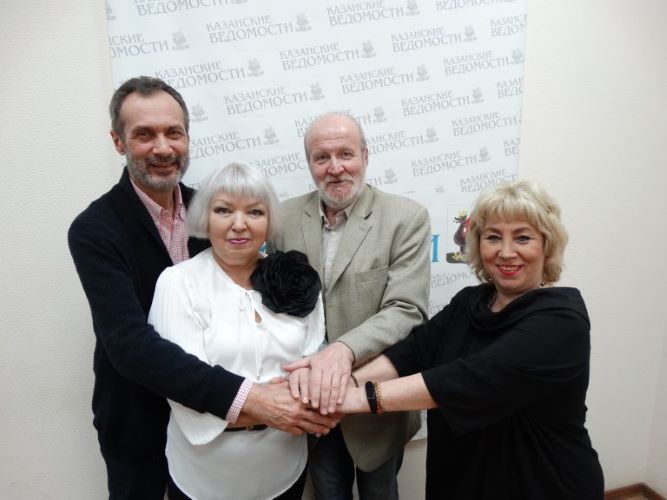
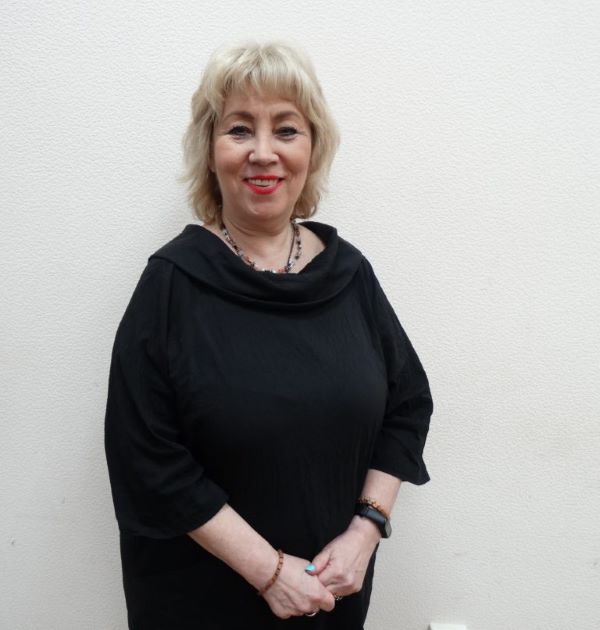 “Handshake of the Republics” is confidently reaching the international level. Poets from the BRICS countries will take part in the online cultural forum. A video bridge with Cairo took place at the Kazanskie Vedomosti editorial office. The organizer of the festival, poet Olga Levadnaya, chairman of the Kazan city organization of the Tatarstan branch of the Union of Russian Writers Alexander Voronin, journalist, film and television director Shamil Fattakhov, who took on the mission of translator, and President of the Association of Publishers and Distributors of Printed Products of the Republic of Tatarstan, editor-in-chief of the Kazanskie newspaper Vedomosti” Venera Yakupova spoke via videoconference with the famous writer, journalist, translator, president of the Eurasian Journalists Association Ashraf Aboul-Yazid.
“Handshake of the Republics” is confidently reaching the international level. Poets from the BRICS countries will take part in the online cultural forum. A video bridge with Cairo took place at the Kazanskie Vedomosti editorial office. The organizer of the festival, poet Olga Levadnaya, chairman of the Kazan city organization of the Tatarstan branch of the Union of Russian Writers Alexander Voronin, journalist, film and television director Shamil Fattakhov, who took on the mission of translator, and President of the Association of Publishers and Distributors of Printed Products of the Republic of Tatarstan, editor-in-chief of the Kazanskie newspaper Vedomosti” Venera Yakupova spoke via videoconference with the famous writer, journalist, translator, president of the Eurasian Journalists Association Ashraf Aboul-Yazid.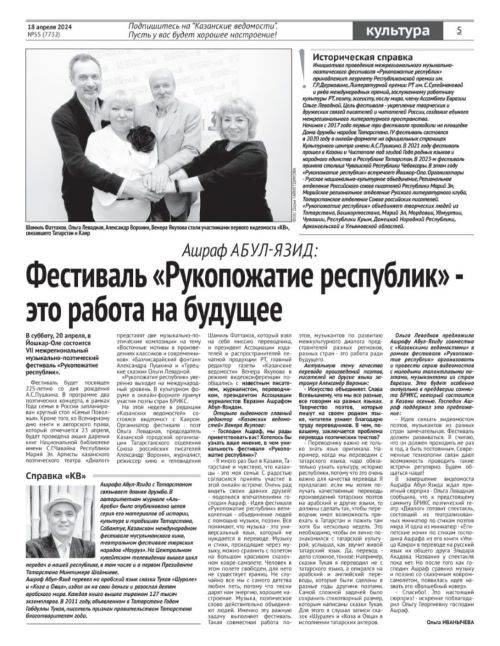 Ashraf Aboul-Yazid translated Tukay’s fairy tales “Shurale” and “Goat and Sheep” into Arabic, published them with and sent them to children in the Arab world. Each book was published in a circulation of 127 thousand copies. In 2011, declared the Year of Gabdulla Tukay in Tatarstan, Ashraf Aboul-Yazid was recognized by the government of Tatarstan as the philanthropist of the year.
Ashraf Aboul-Yazid translated Tukay’s fairy tales “Shurale” and “Goat and Sheep” into Arabic, published them with and sent them to children in the Arab world. Each book was published in a circulation of 127 thousand copies. In 2011, declared the Year of Gabdulla Tukay in Tatarstan, Ashraf Aboul-Yazid was recognized by the government of Tatarstan as the philanthropist of the year.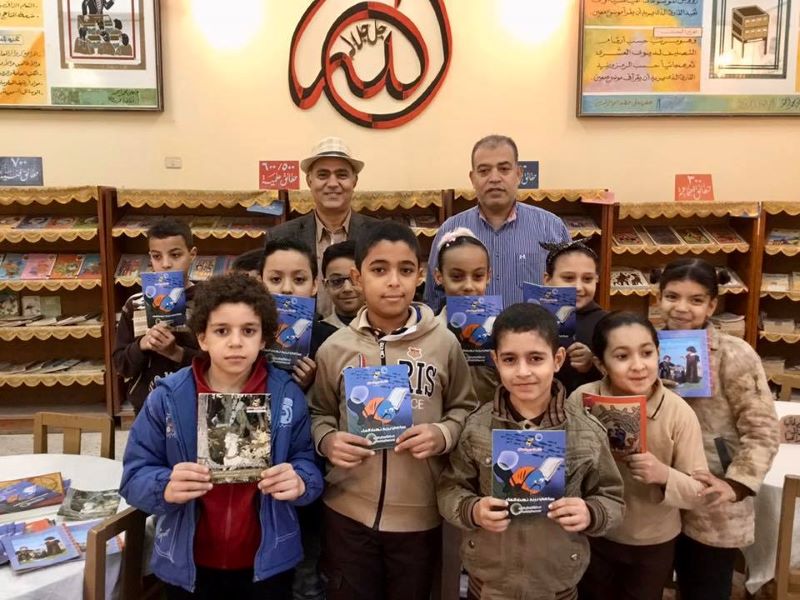 Olga Levadnaya suggested that Ashraf Aboul-Yazid, together with Kazanskie Vedomosti, as part of the Handshake of the Republics festival, organize and conduct a series of video bridges with young talented poets and musicians from Eurasian countries. This will be especially relevant on the eve of the BRICS summit, which will take place in Kazan in the fall. Mr. Ashraf supported this proposal:
Olga Levadnaya suggested that Ashraf Aboul-Yazid, together with Kazanskie Vedomosti, as part of the Handshake of the Republics festival, organize and conduct a series of video bridges with young talented poets and musicians from Eurasian countries. This will be especially relevant on the eve of the BRICS summit, which will take place in Kazan in the fall. Mr. Ashraf supported this proposal: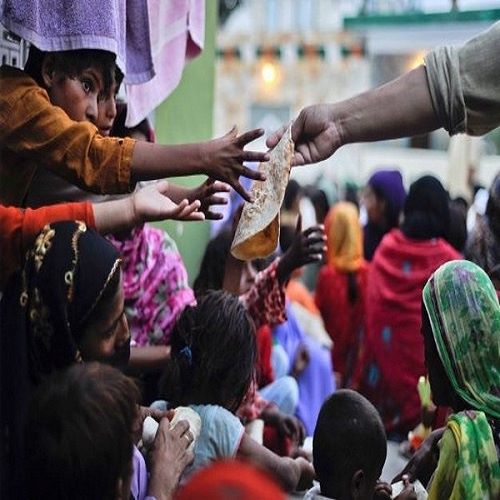
 In Sindh, the low literacy rate and unskilled manpower are the some other factors behind poverty. The current literacy rate in Sindh province is 61.8 per cent in 2024. We should focus on education and grow it at higher level, as it is the best way to eradicate poverty.
In Sindh, the low literacy rate and unskilled manpower are the some other factors behind poverty. The current literacy rate in Sindh province is 61.8 per cent in 2024. We should focus on education and grow it at higher level, as it is the best way to eradicate poverty. 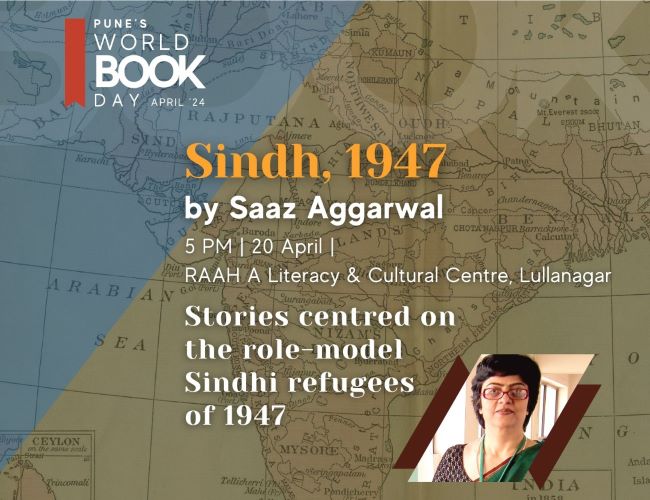
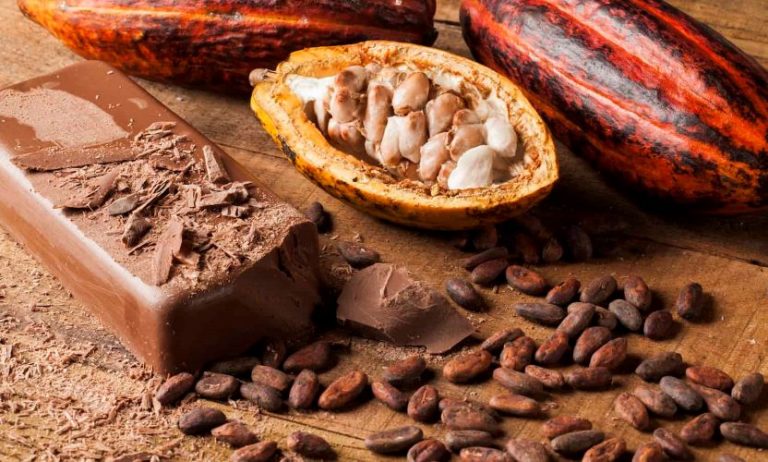
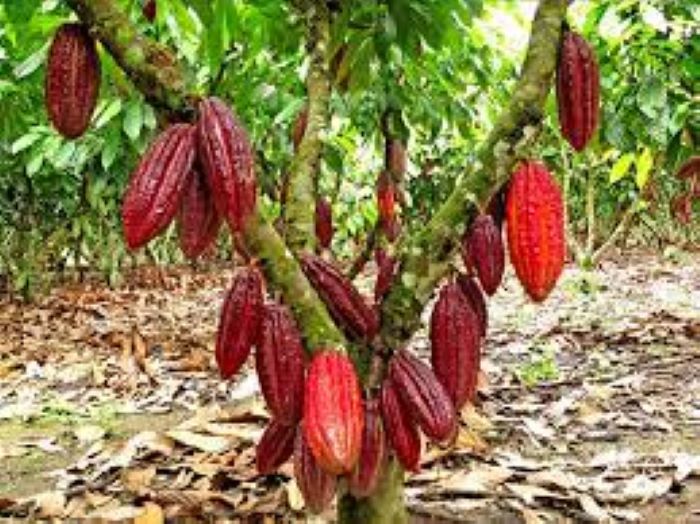 Chocolate Market Drivers in the US
Chocolate Market Drivers in the US Despite the high prices of dark chocolates, only a small portion of consumers currently purchase them. However, the penetration rate is steadily increasing. This has also led to the leading chocolate companies such as Lindt and Godiva promoting their premium dark chocolates as gifts, as many consumers who prioritize the quality & brand of the chocolate purchase them. Chocolate Market Challenges in the USA major challenge in the United States chocolate market is rising health & wellness concerns among consumers which may hinder the growth of the United States chocolate market during the forecast period.
Despite the high prices of dark chocolates, only a small portion of consumers currently purchase them. However, the penetration rate is steadily increasing. This has also led to the leading chocolate companies such as Lindt and Godiva promoting their premium dark chocolates as gifts, as many consumers who prioritize the quality & brand of the chocolate purchase them. Chocolate Market Challenges in the USA major challenge in the United States chocolate market is rising health & wellness concerns among consumers which may hinder the growth of the United States chocolate market during the forecast period. Competitive Landscape Company Profiles
Competitive Landscape Company Profiles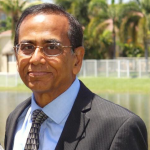 The Bengal-born writer Nazarul Islam is a senior educationist based in USA. He writes for Sindh Courier and the newspapers of Bangladesh, India and America. He is author of a book ‘Chasing Hope’ – a compilation of his articles.
The Bengal-born writer Nazarul Islam is a senior educationist based in USA. He writes for Sindh Courier and the newspapers of Bangladesh, India and America. He is author of a book ‘Chasing Hope’ – a compilation of his articles.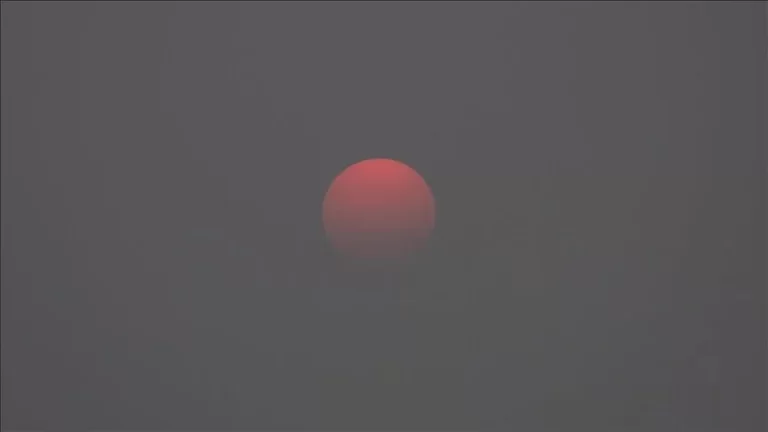
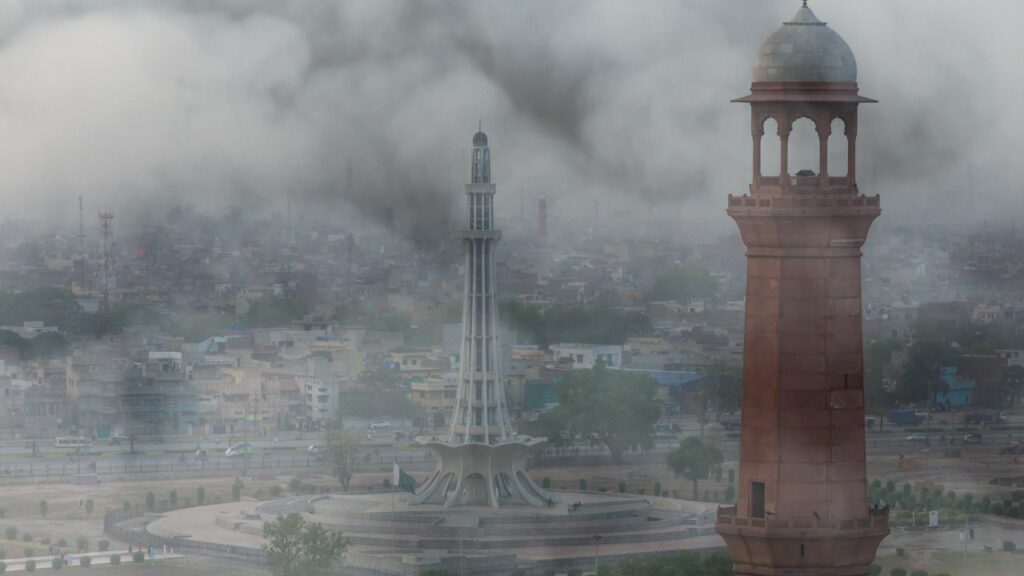 For Shabina Faraz, a Karachi-based analyst focusing on environmental issues, the country’s “hellish” public transport system remains one of the worst contributors to the problem.
For Shabina Faraz, a Karachi-based analyst focusing on environmental issues, the country’s “hellish” public transport system remains one of the worst contributors to the problem.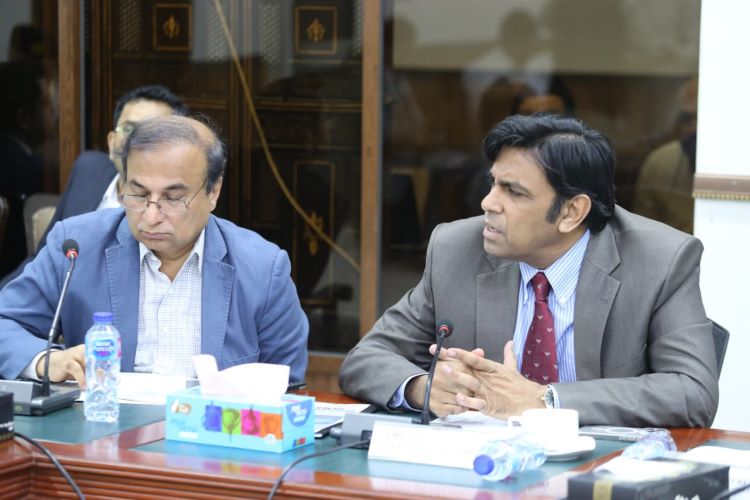
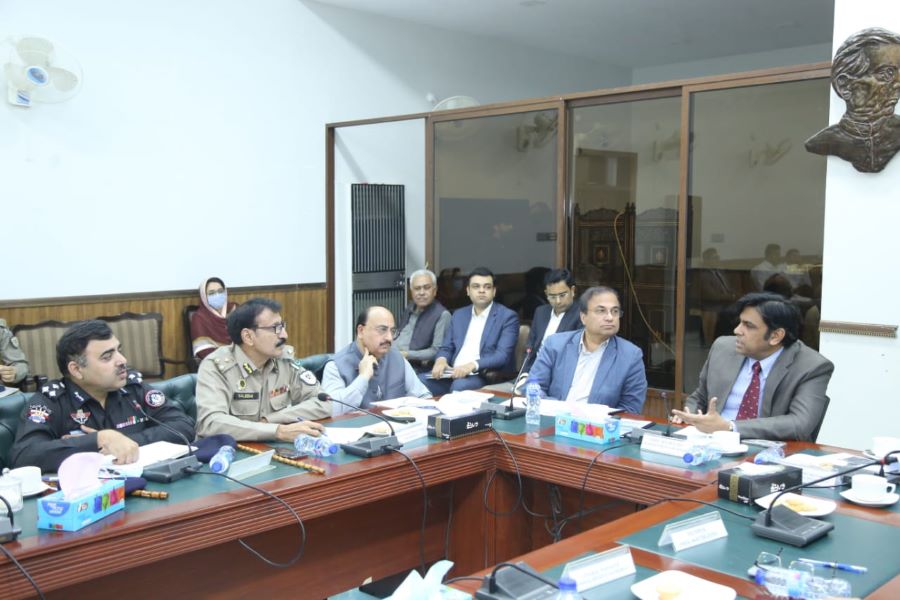 Motorway police was directed to increase the number of patrolling police and establish a control room.
Motorway police was directed to increase the number of patrolling police and establish a control room.